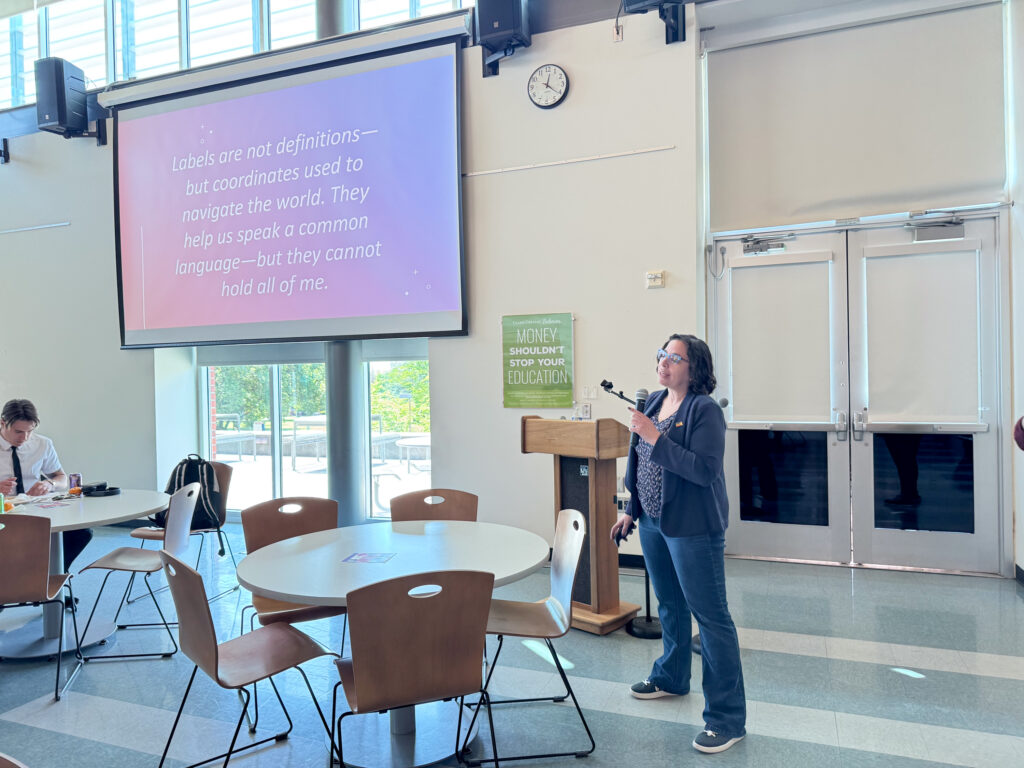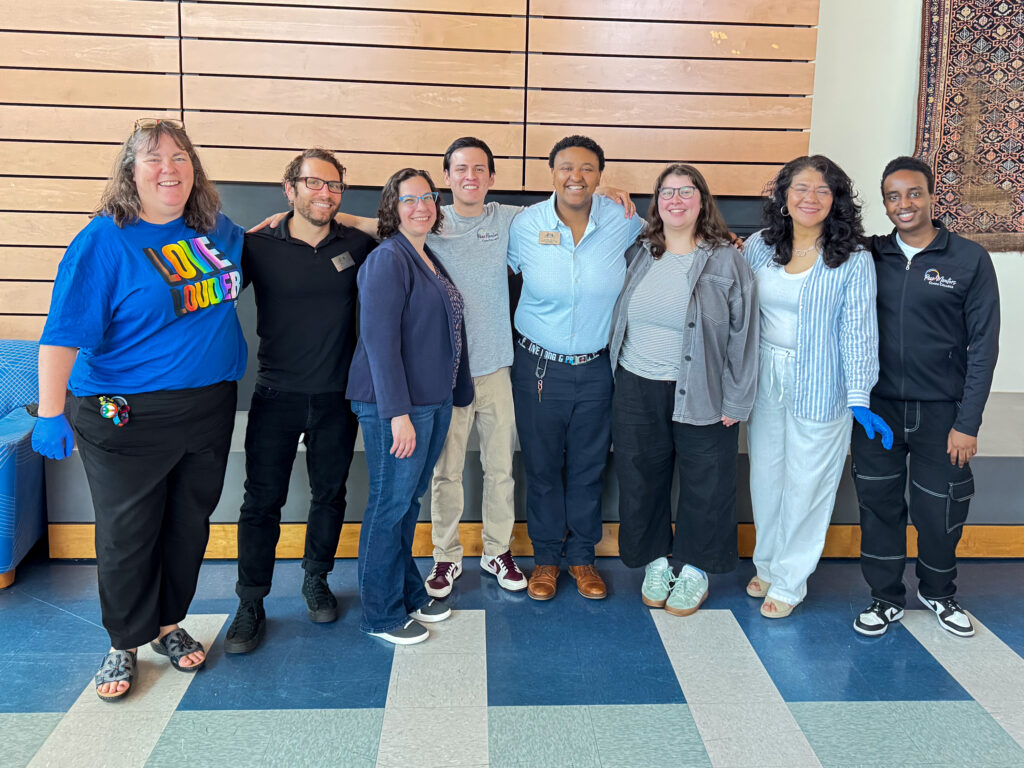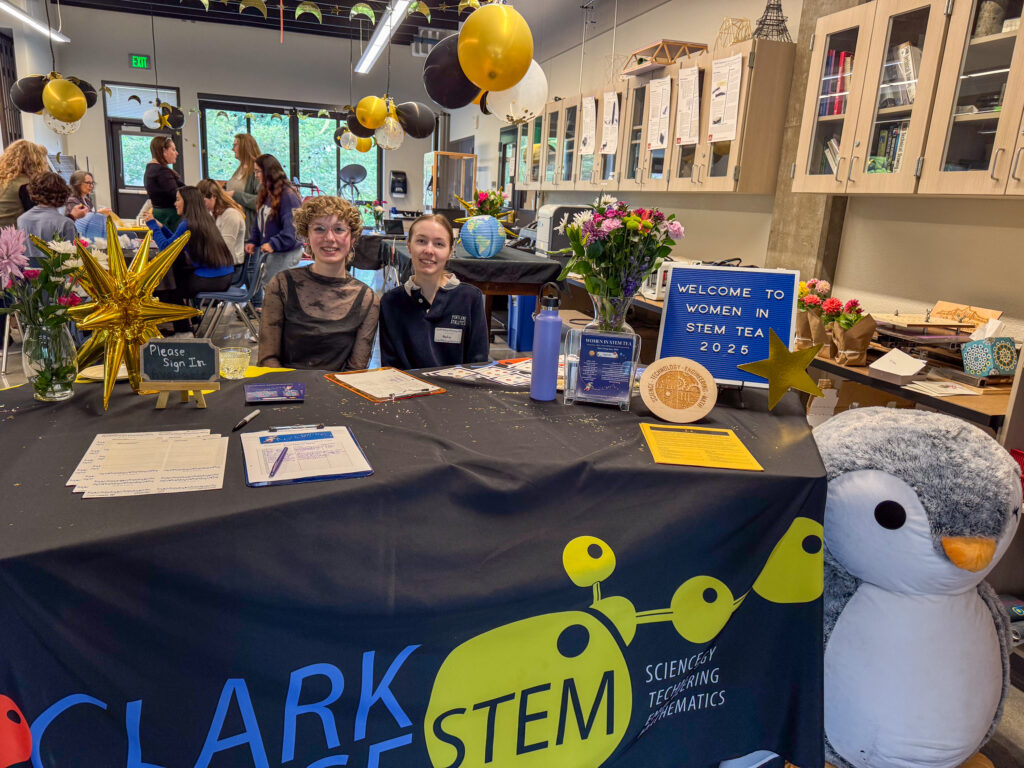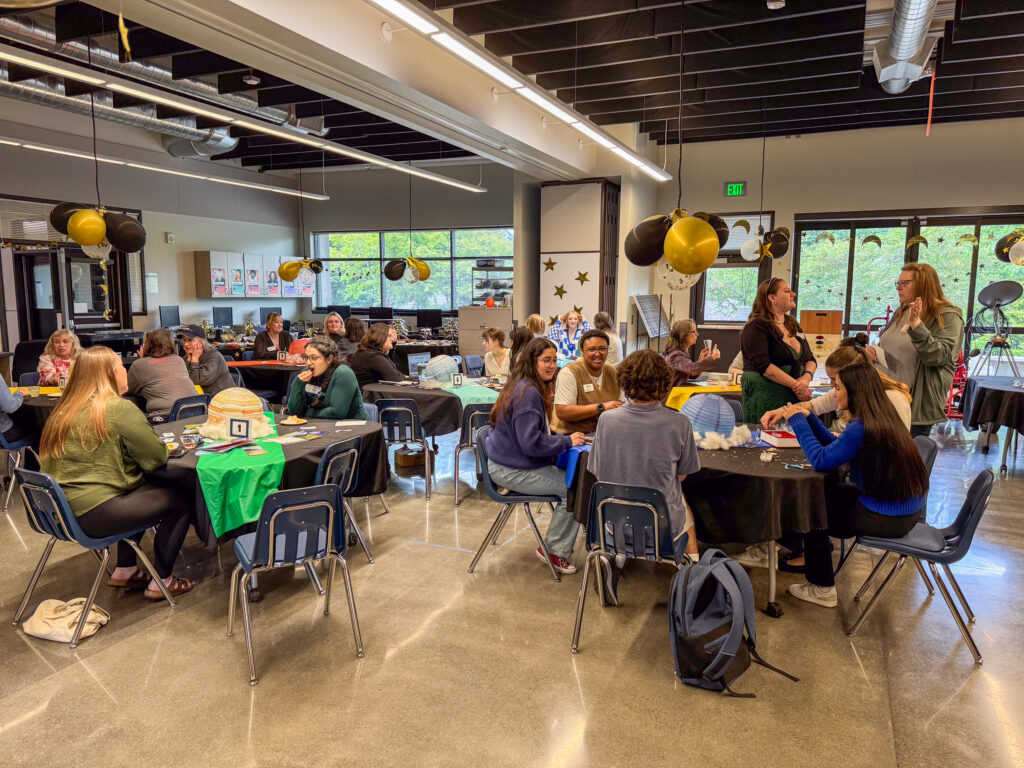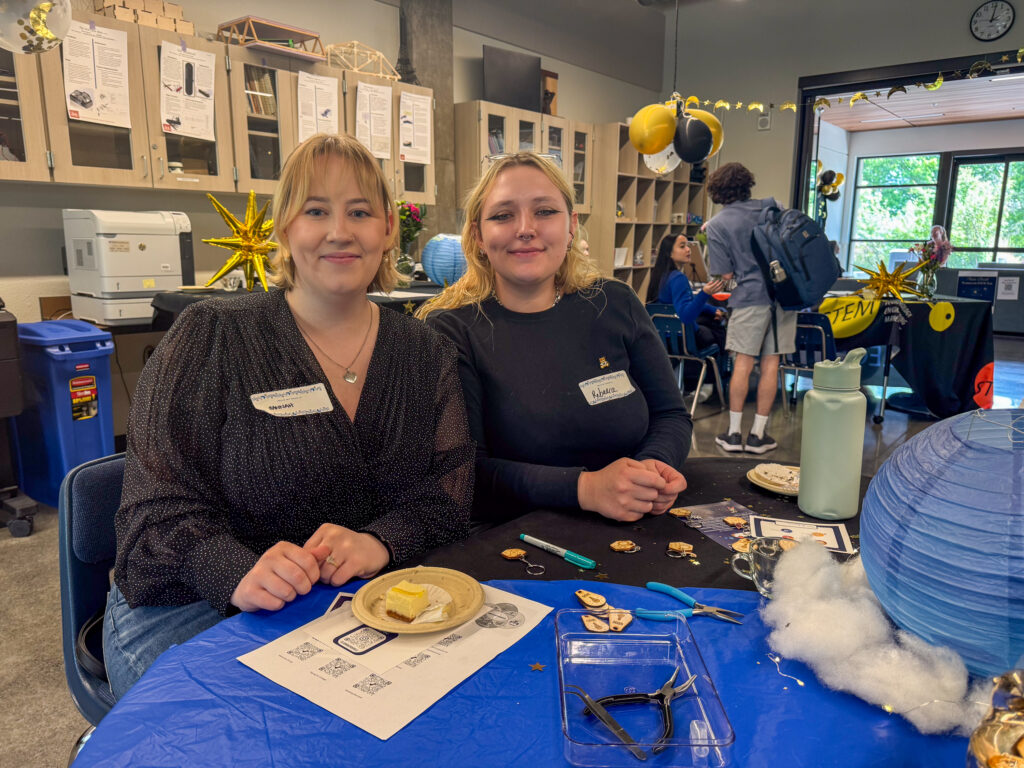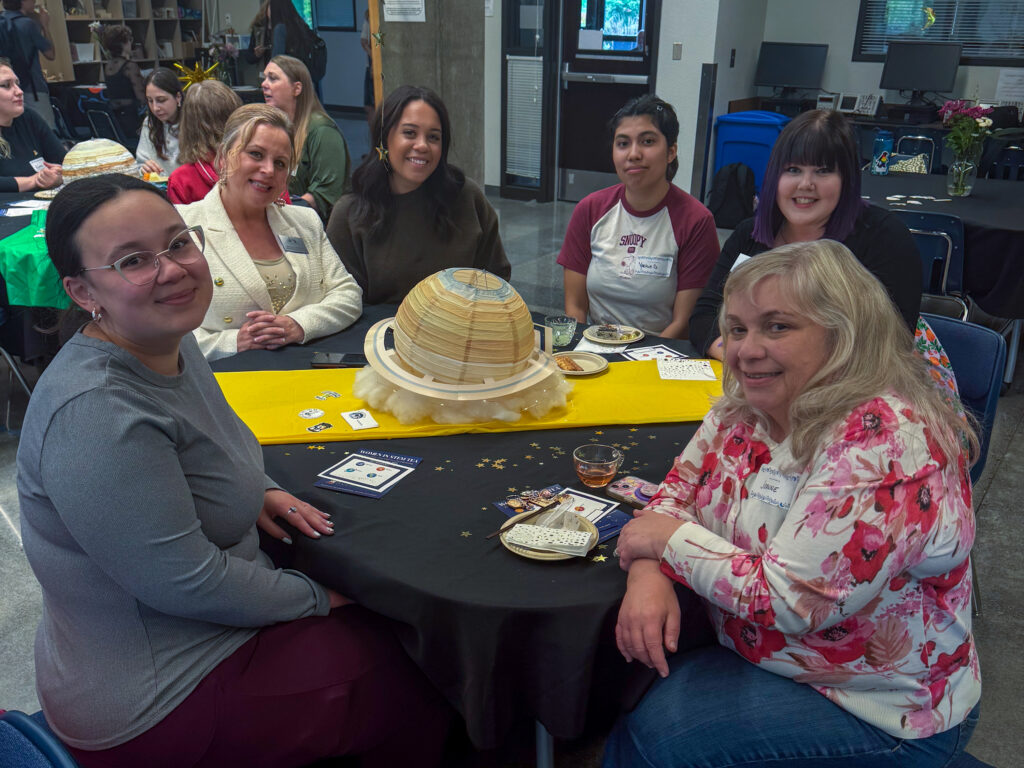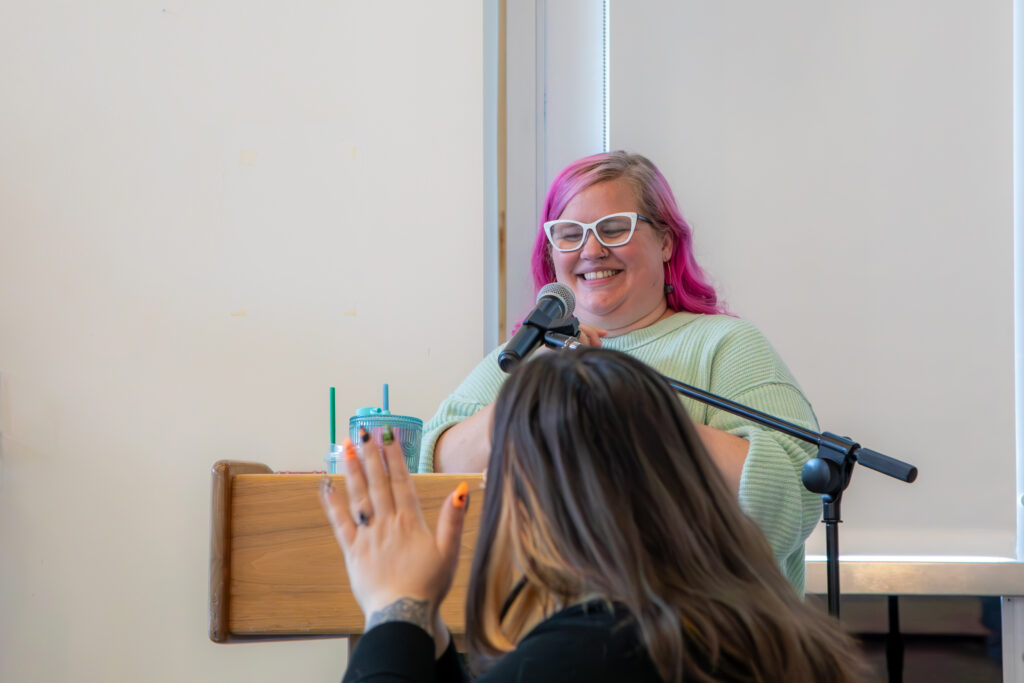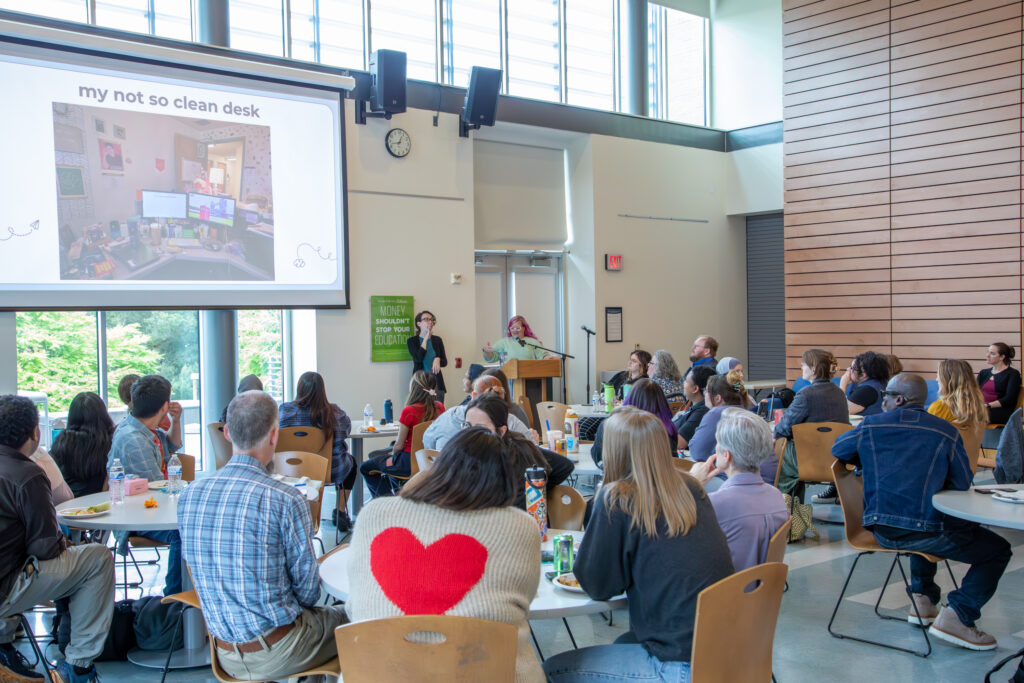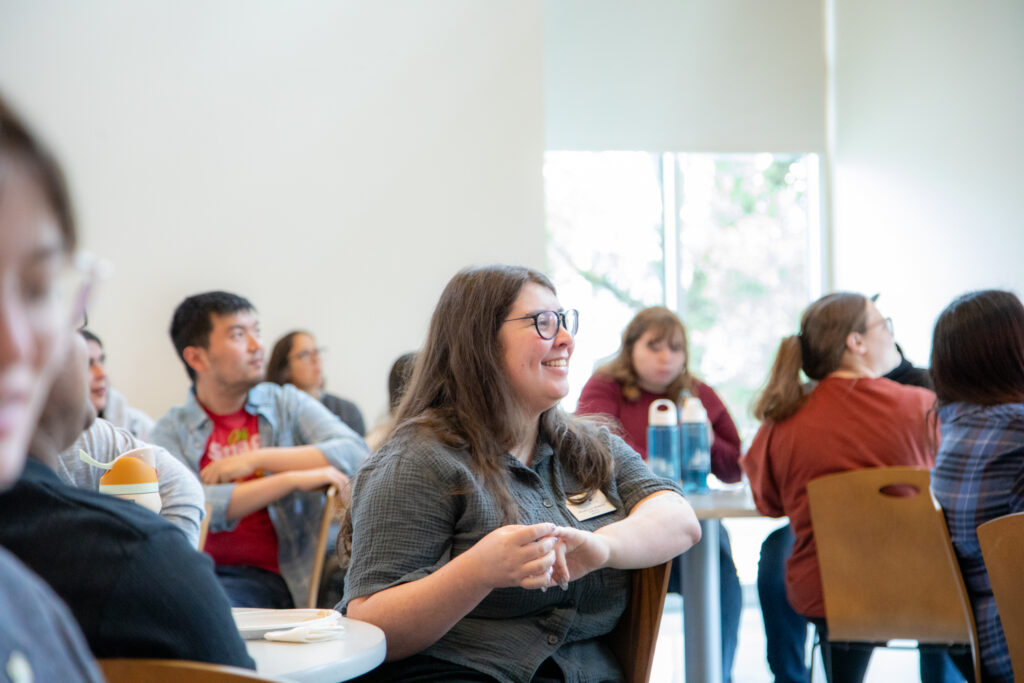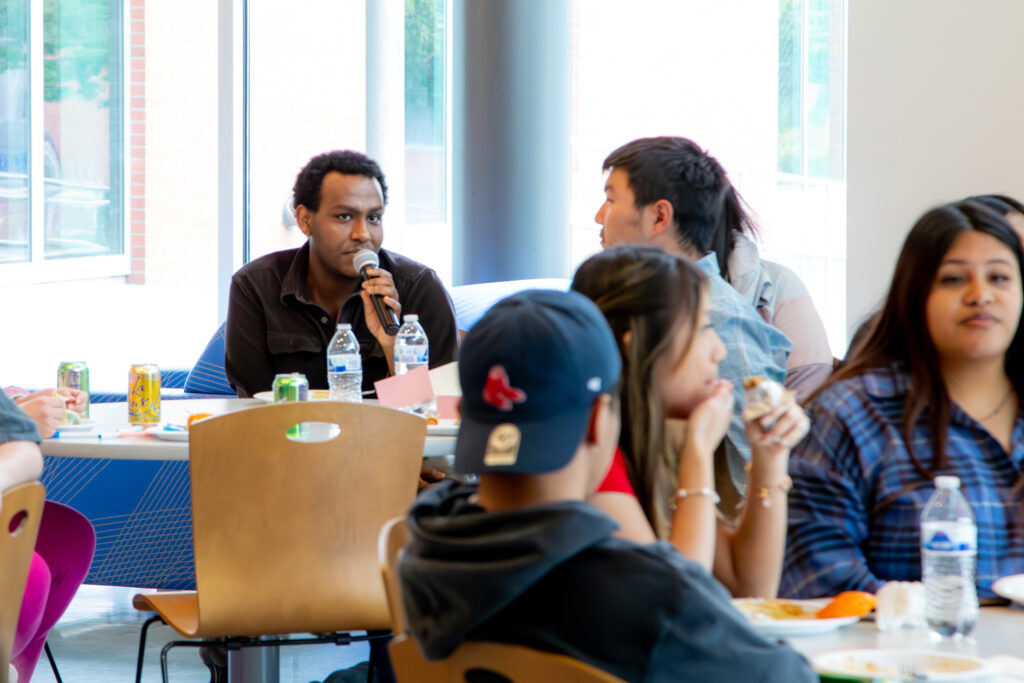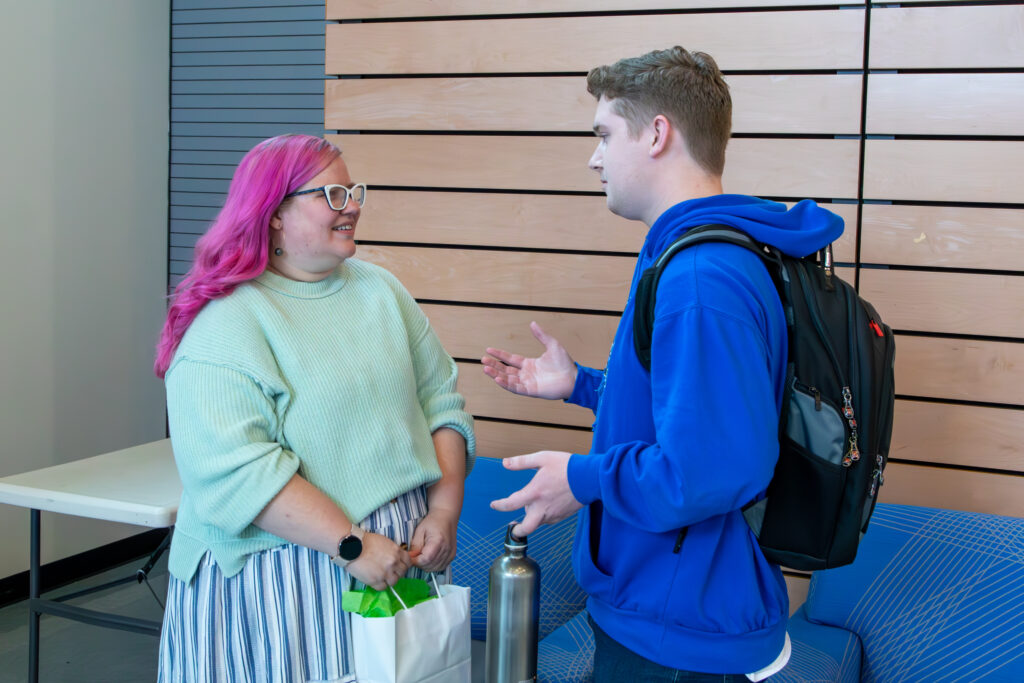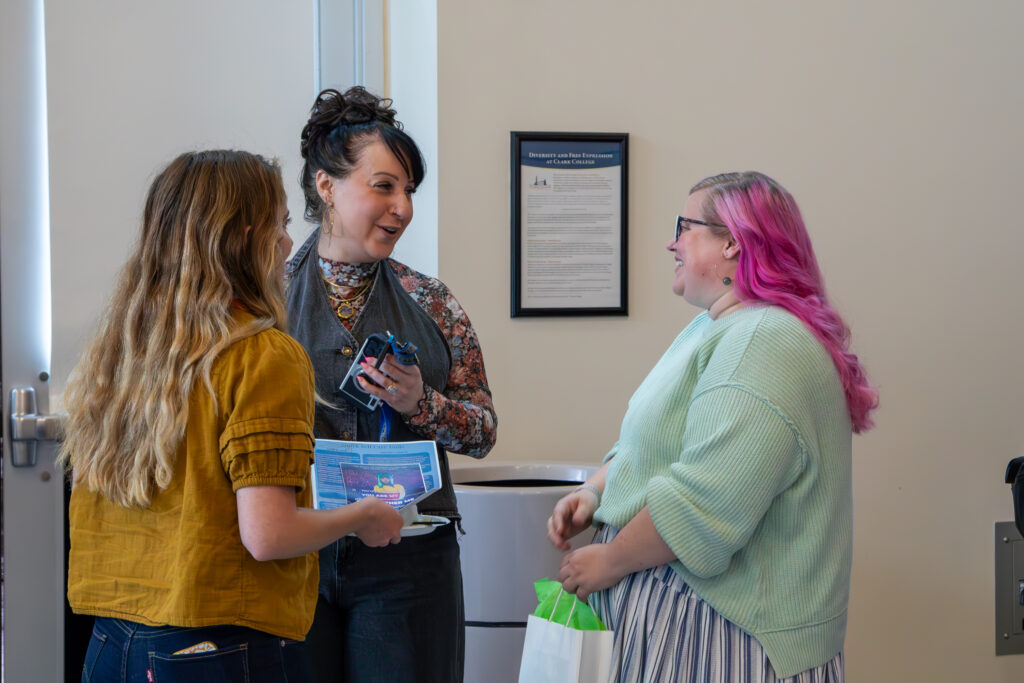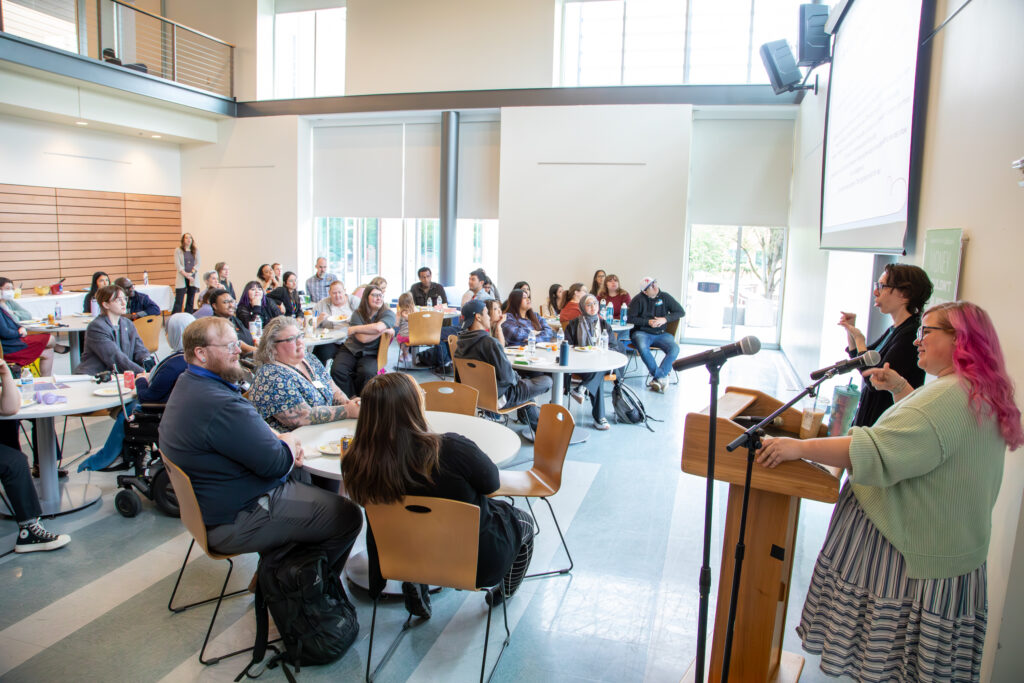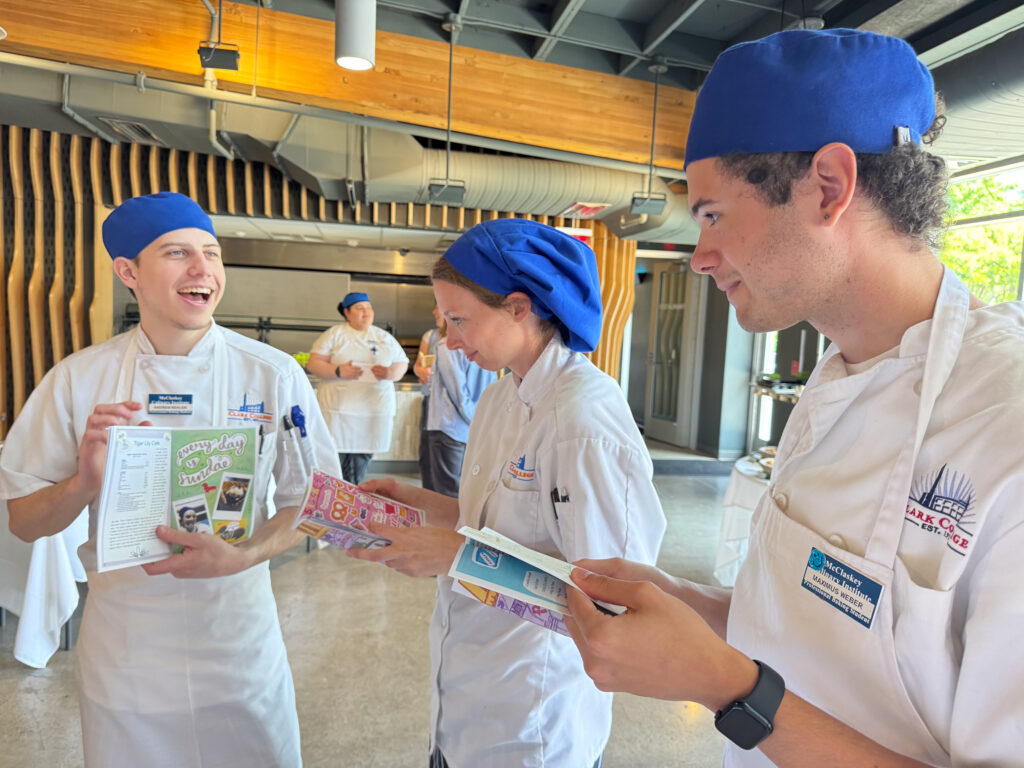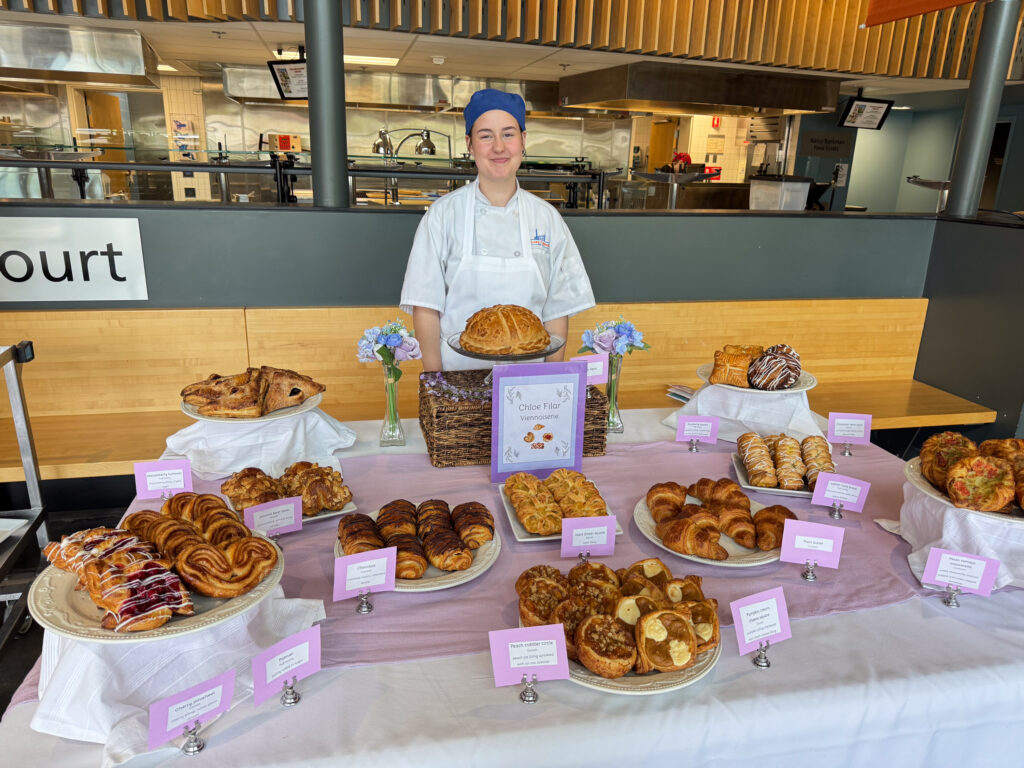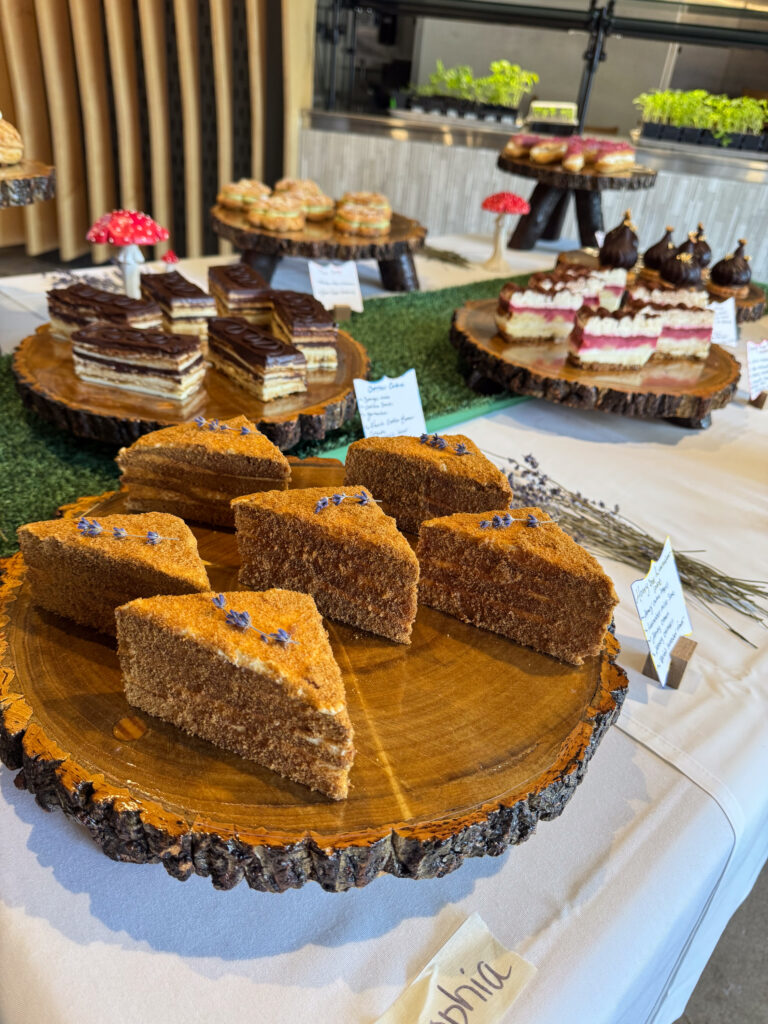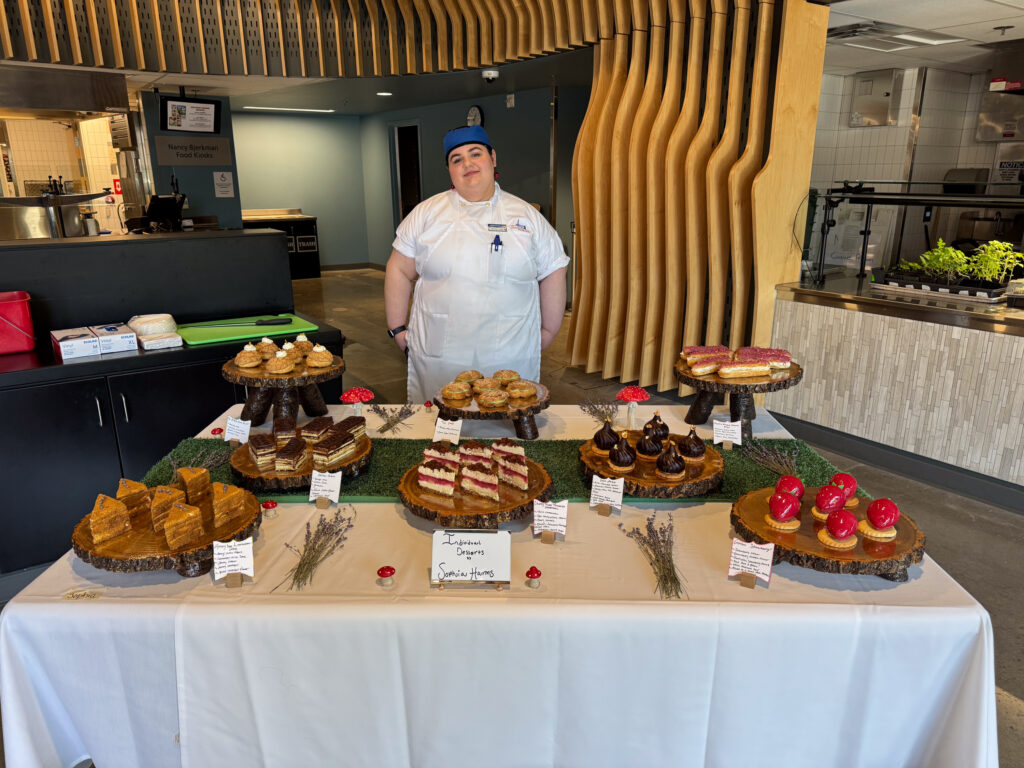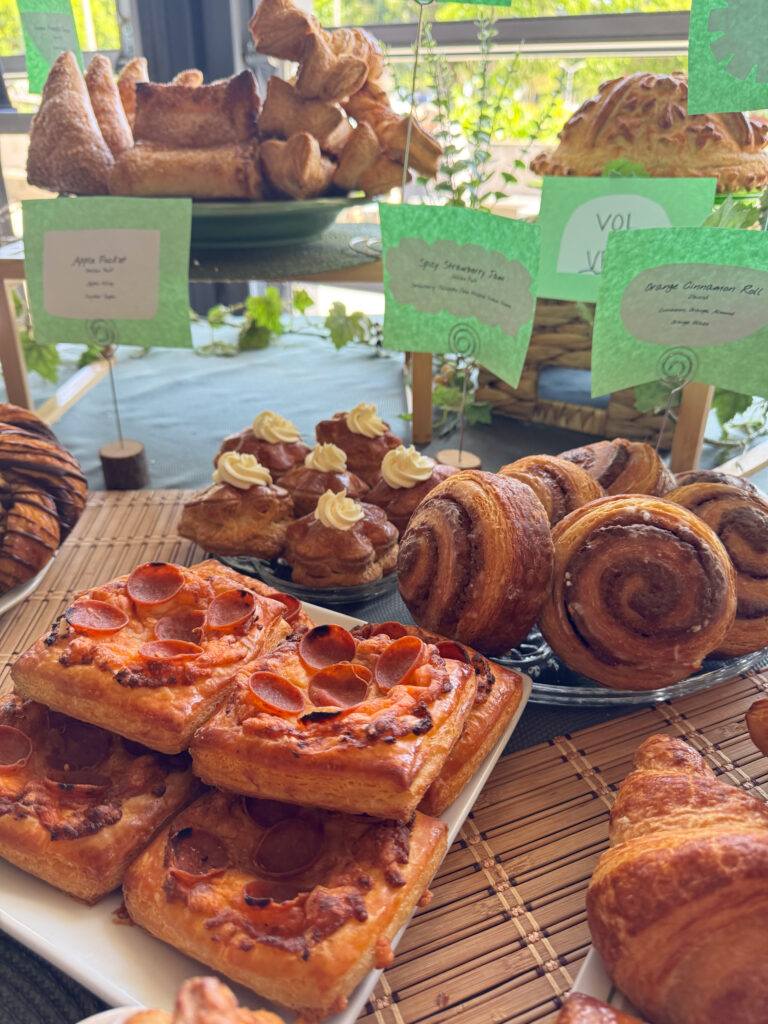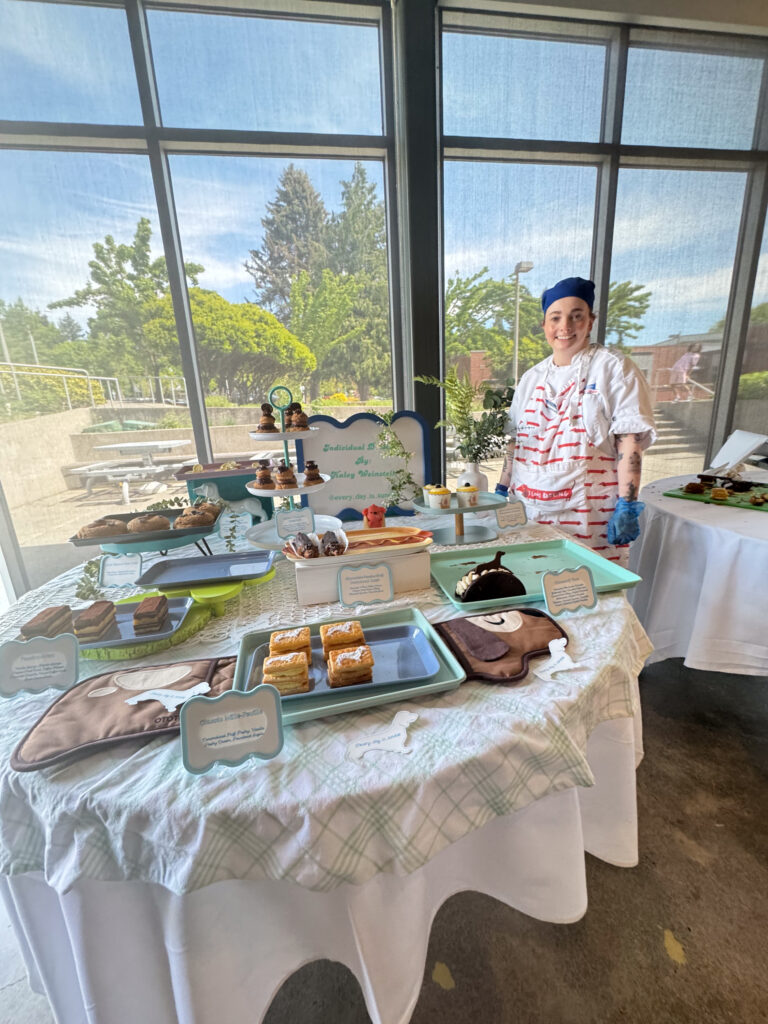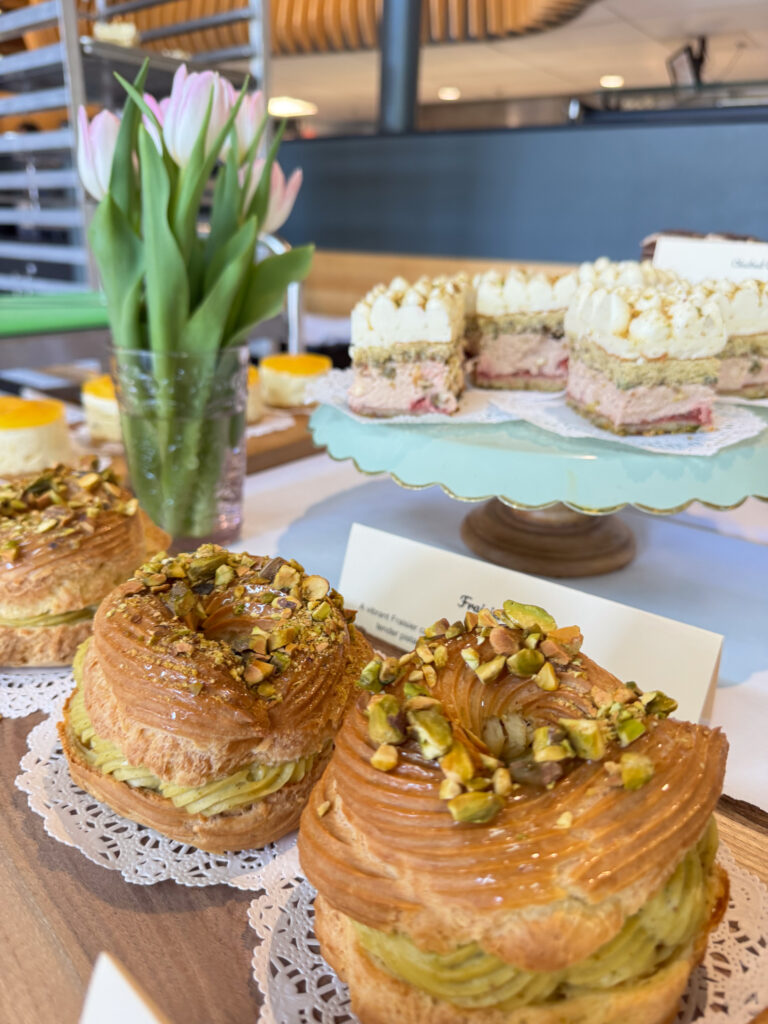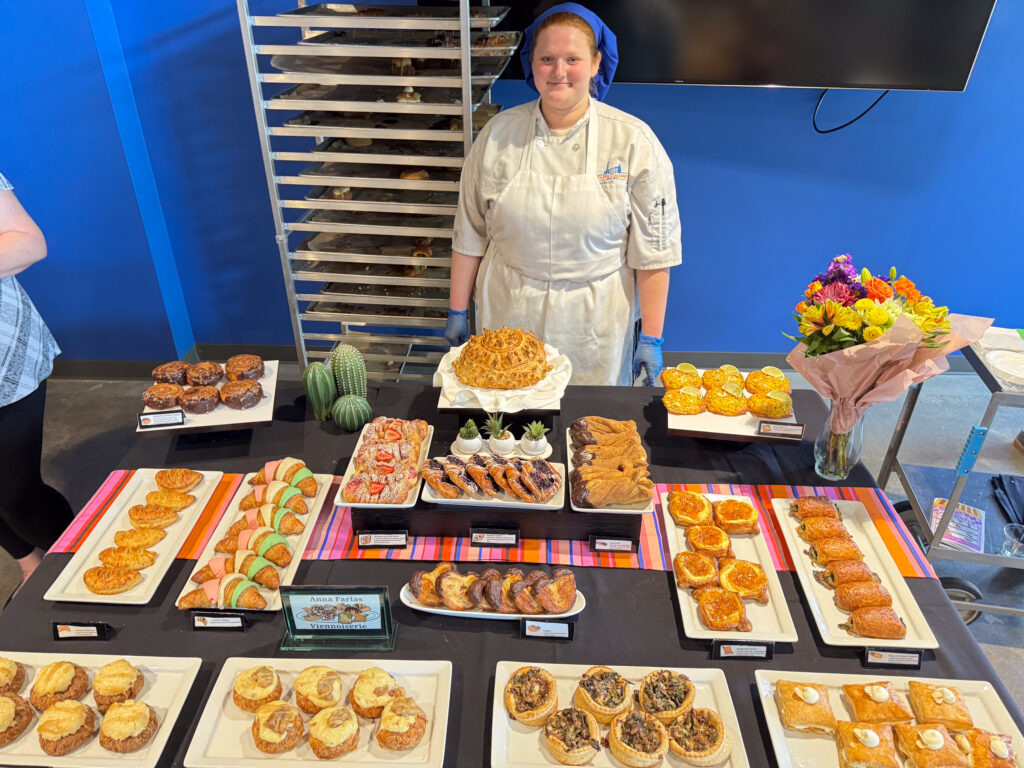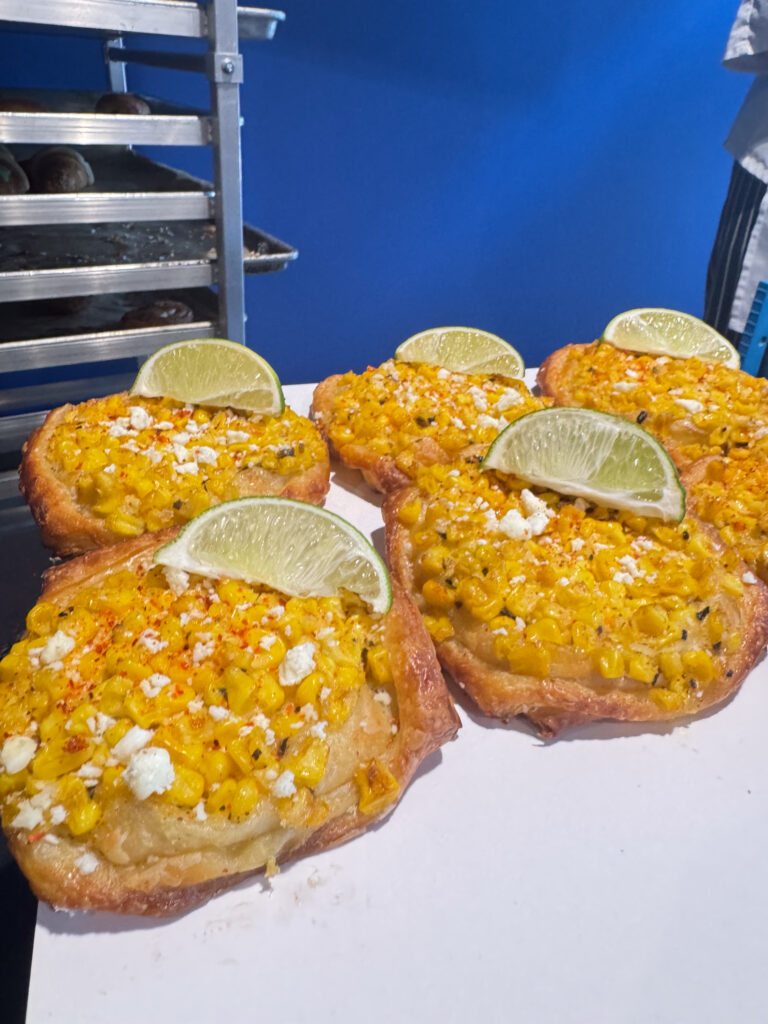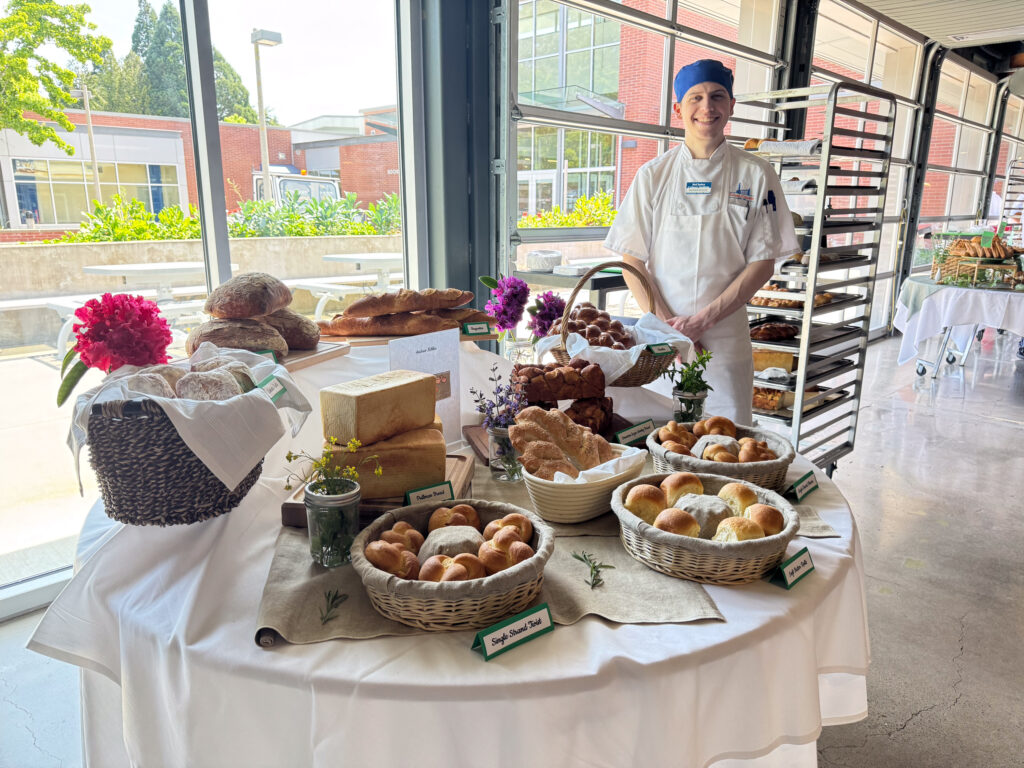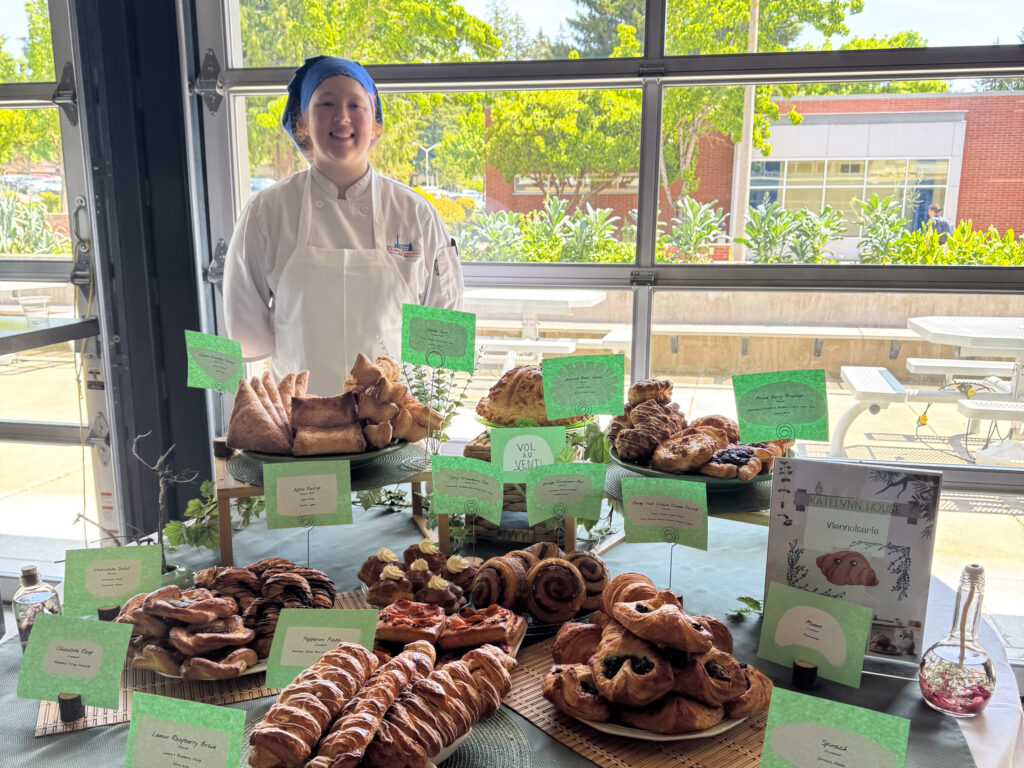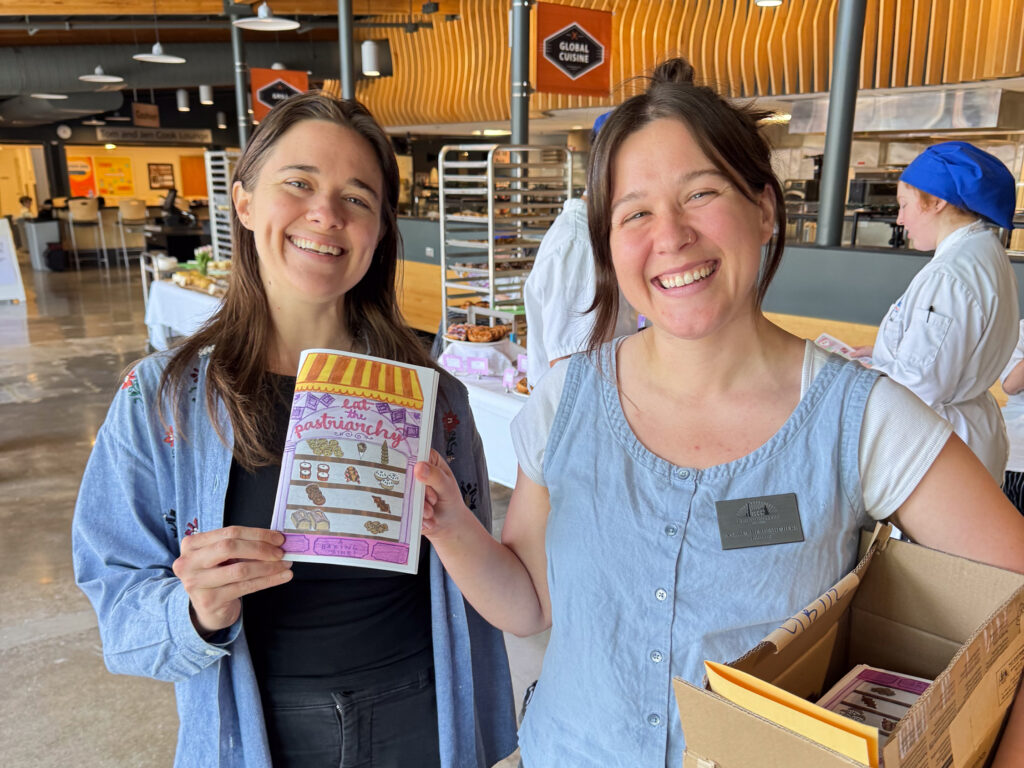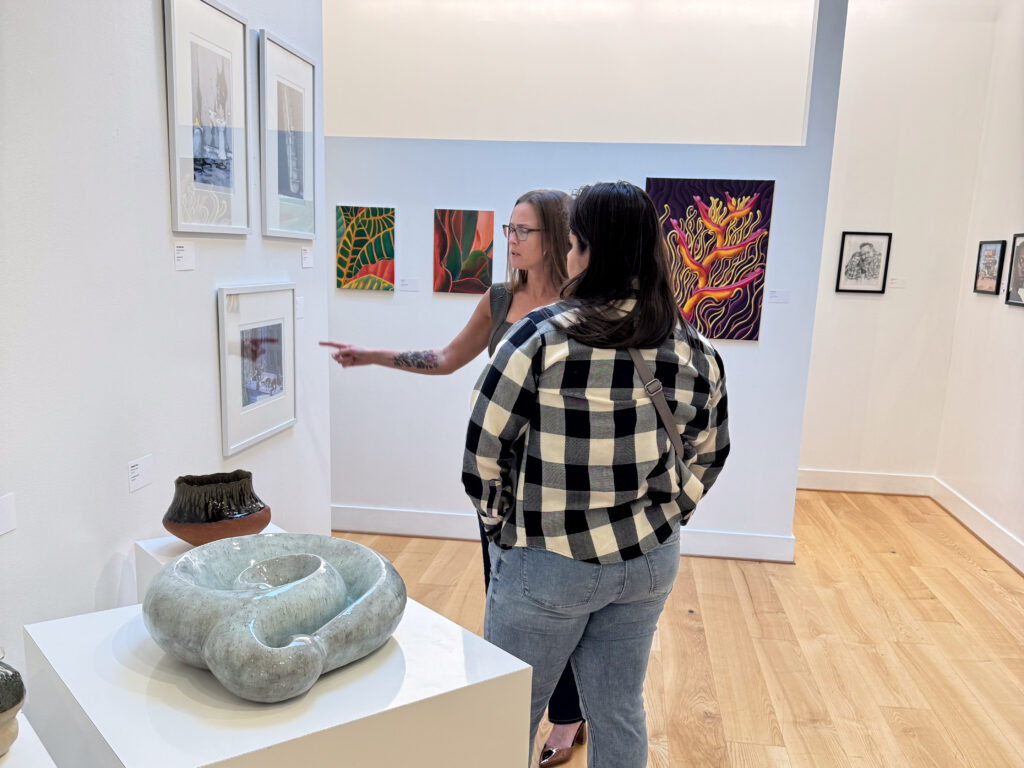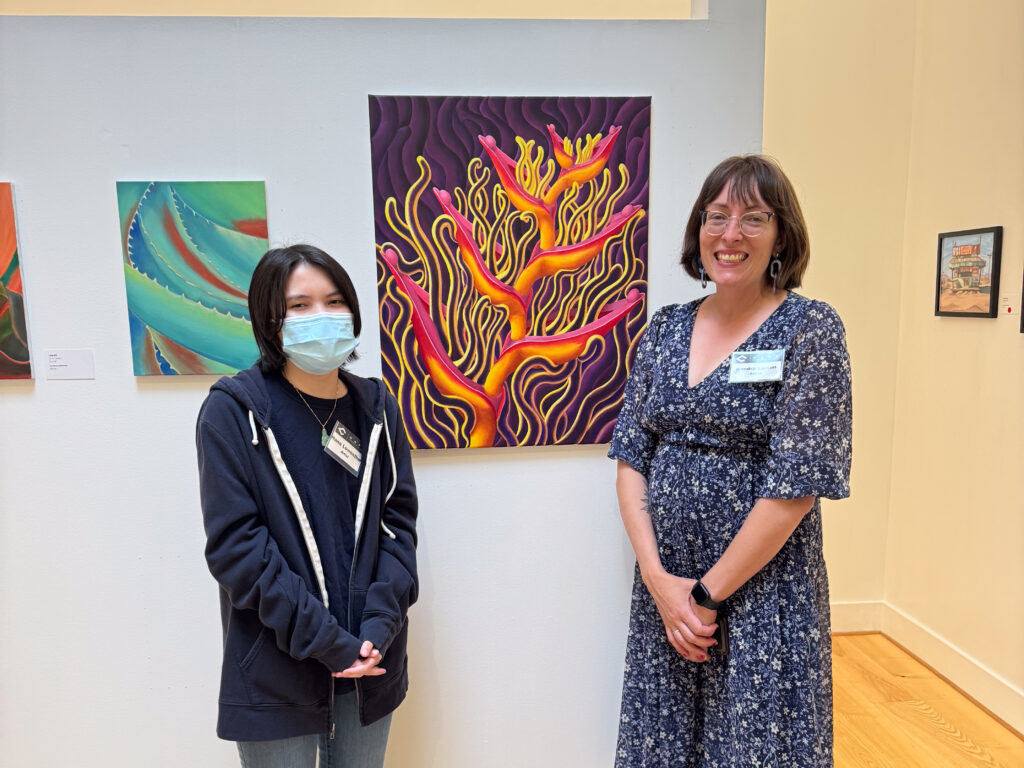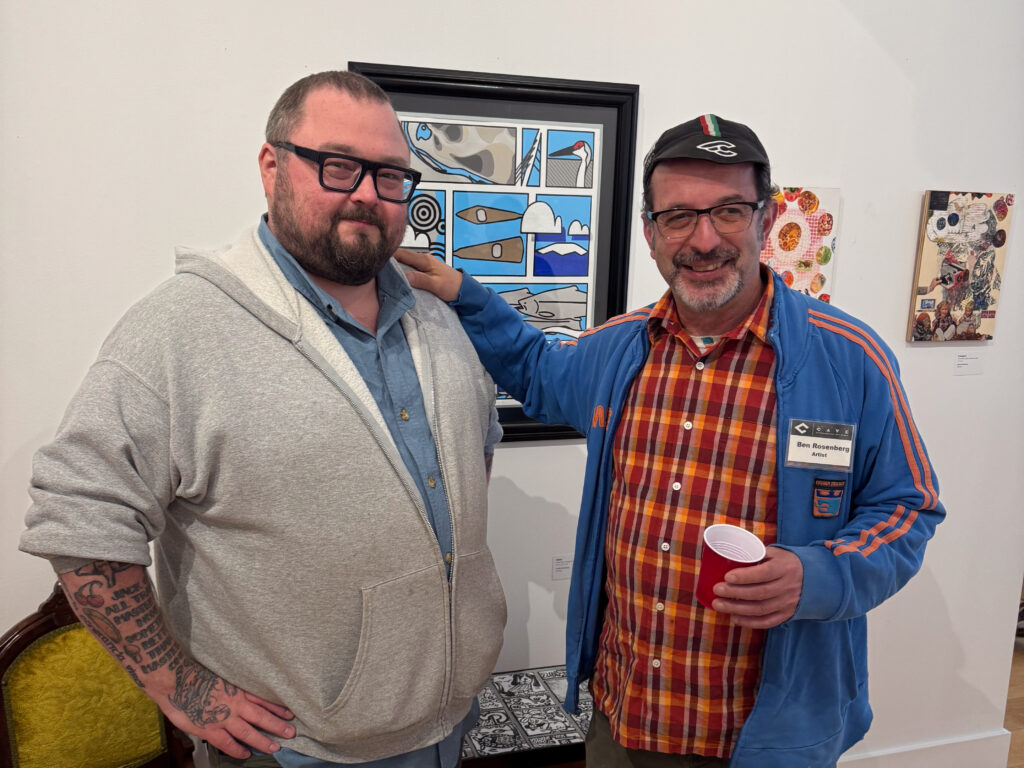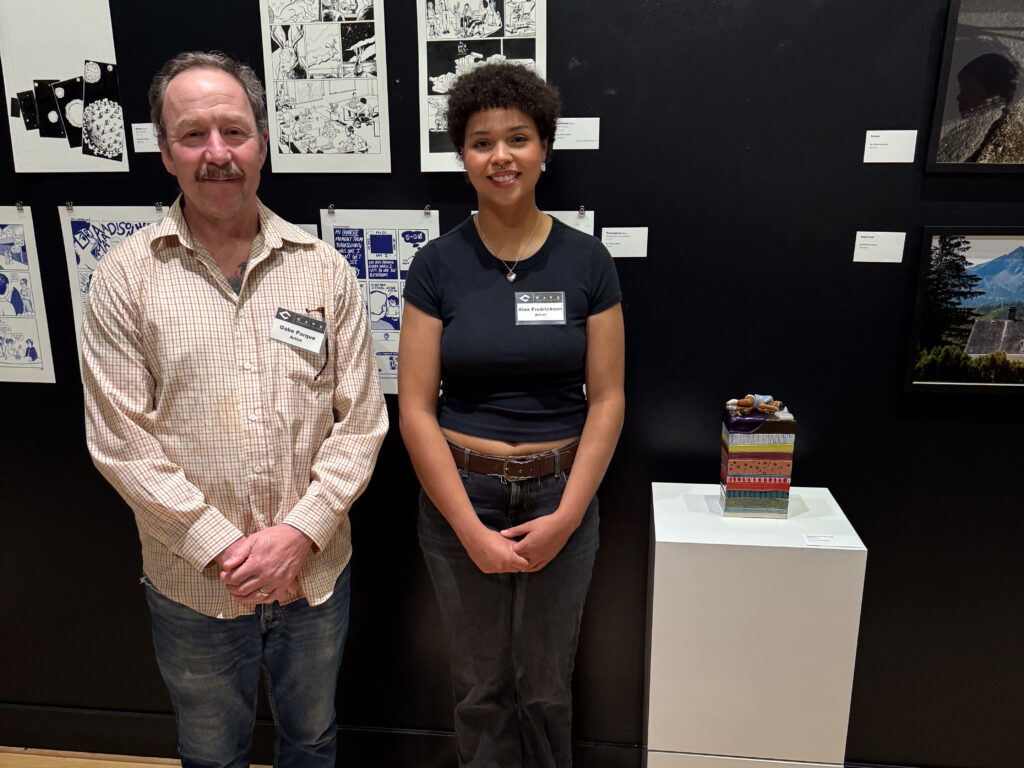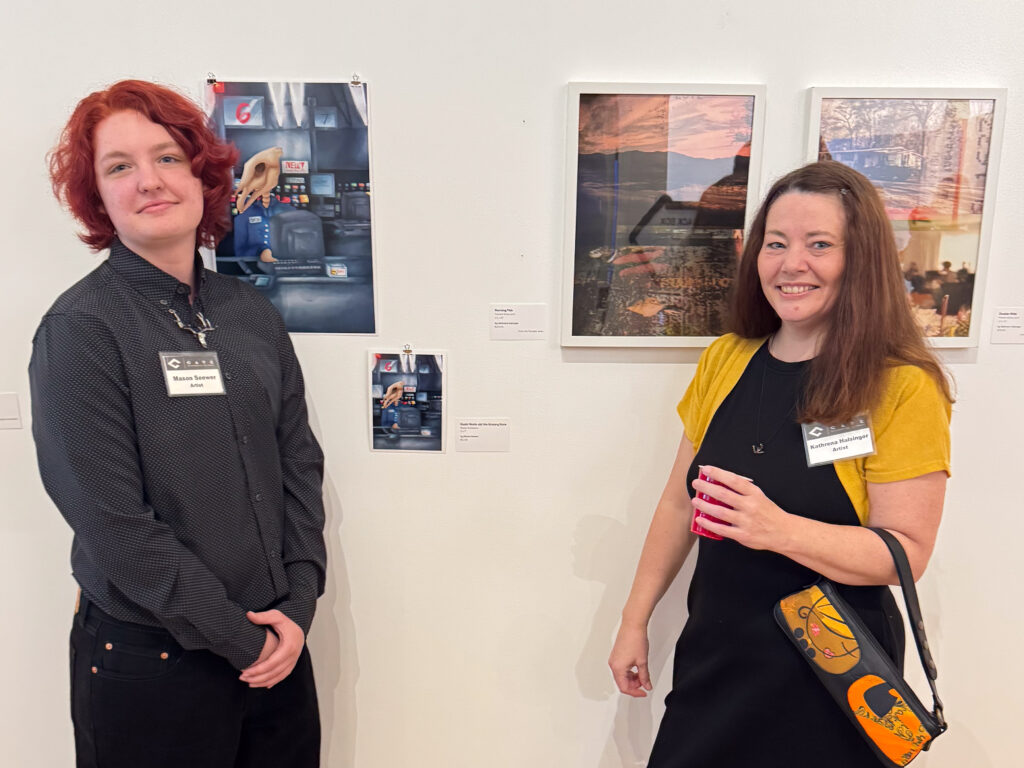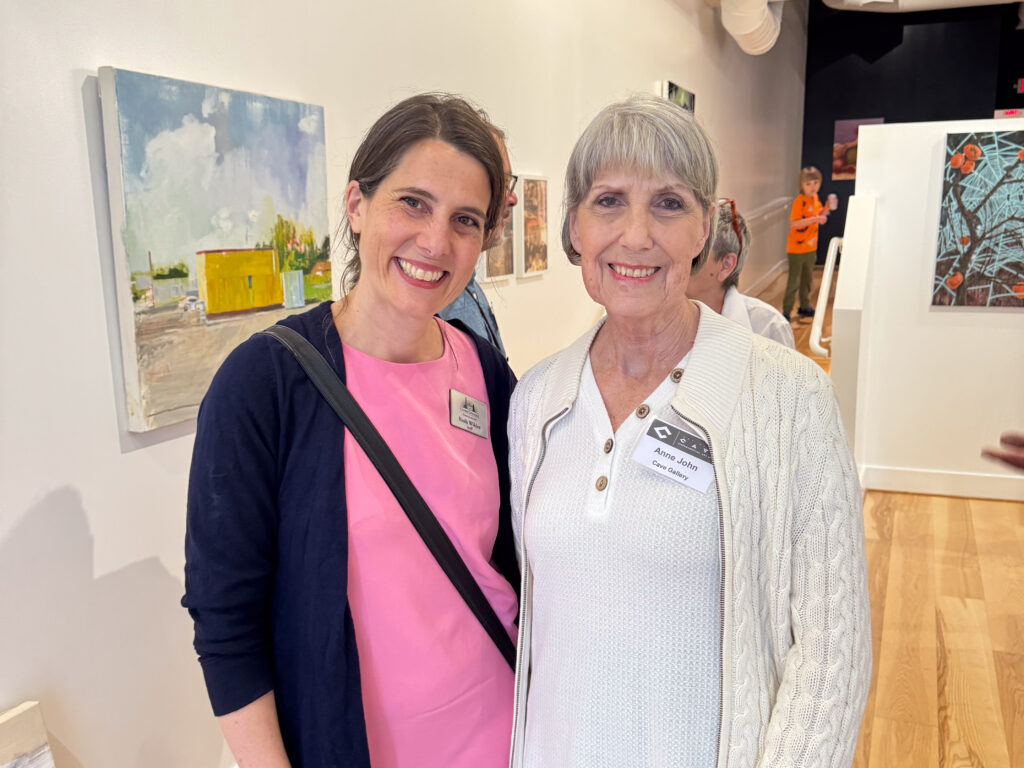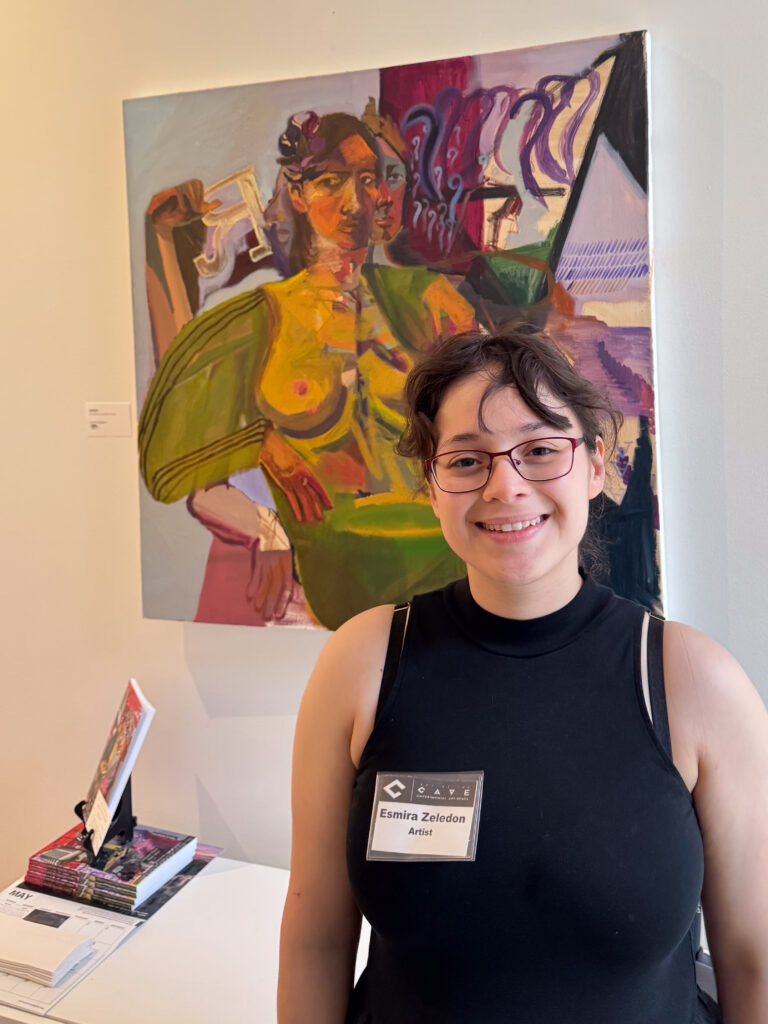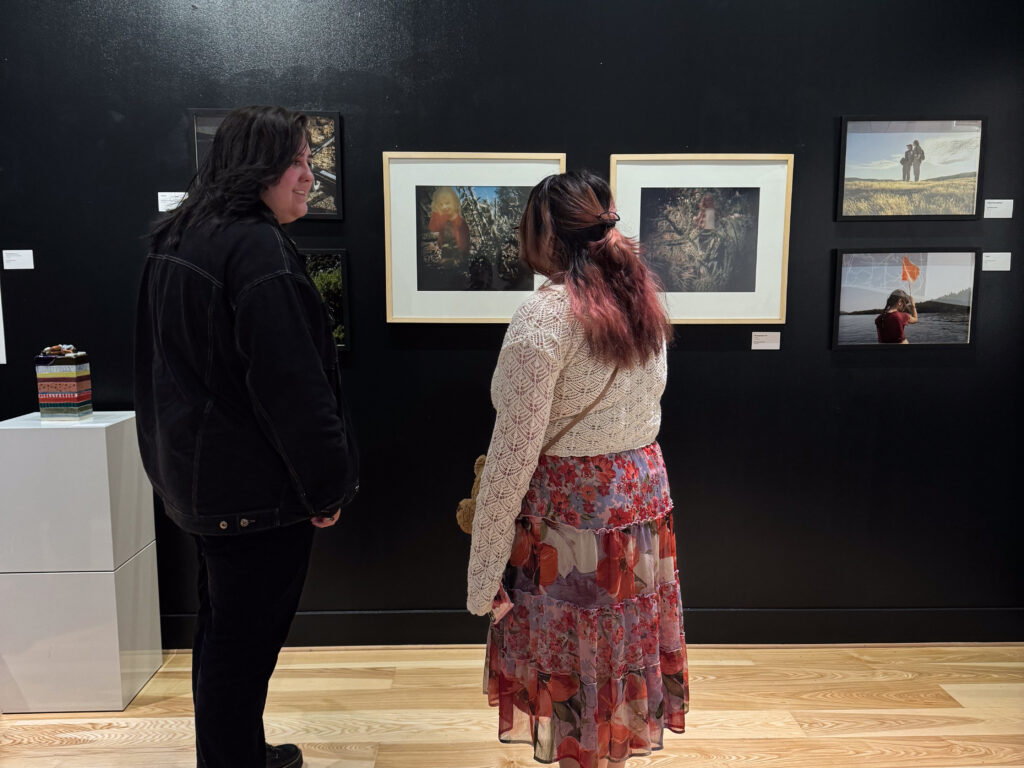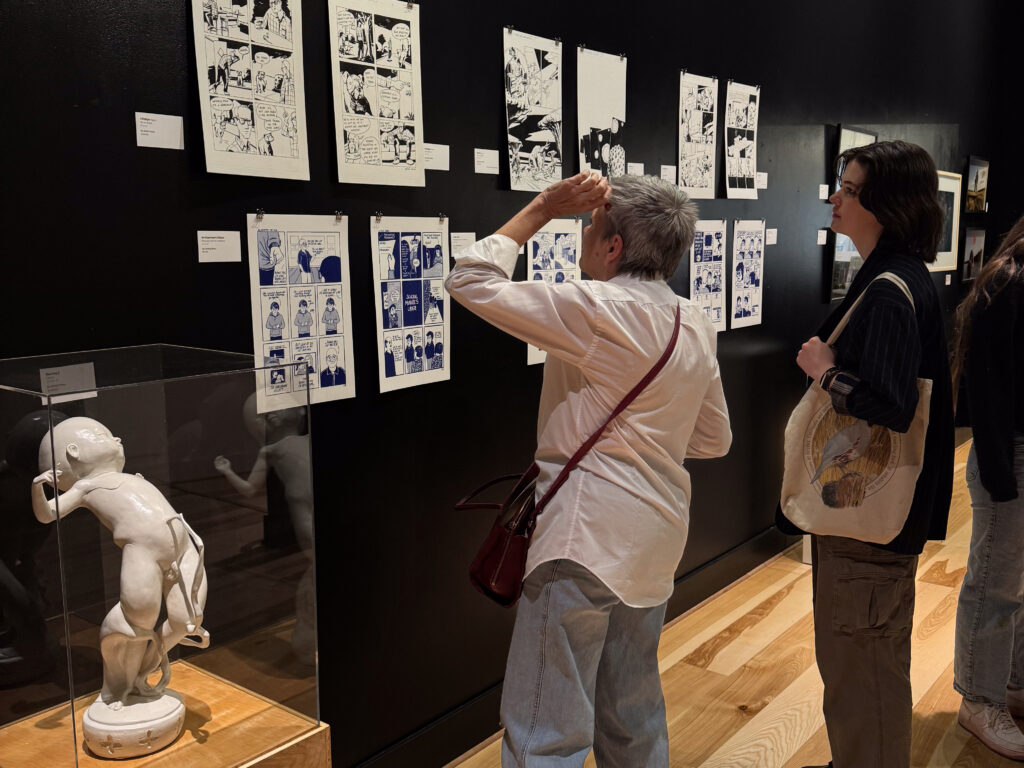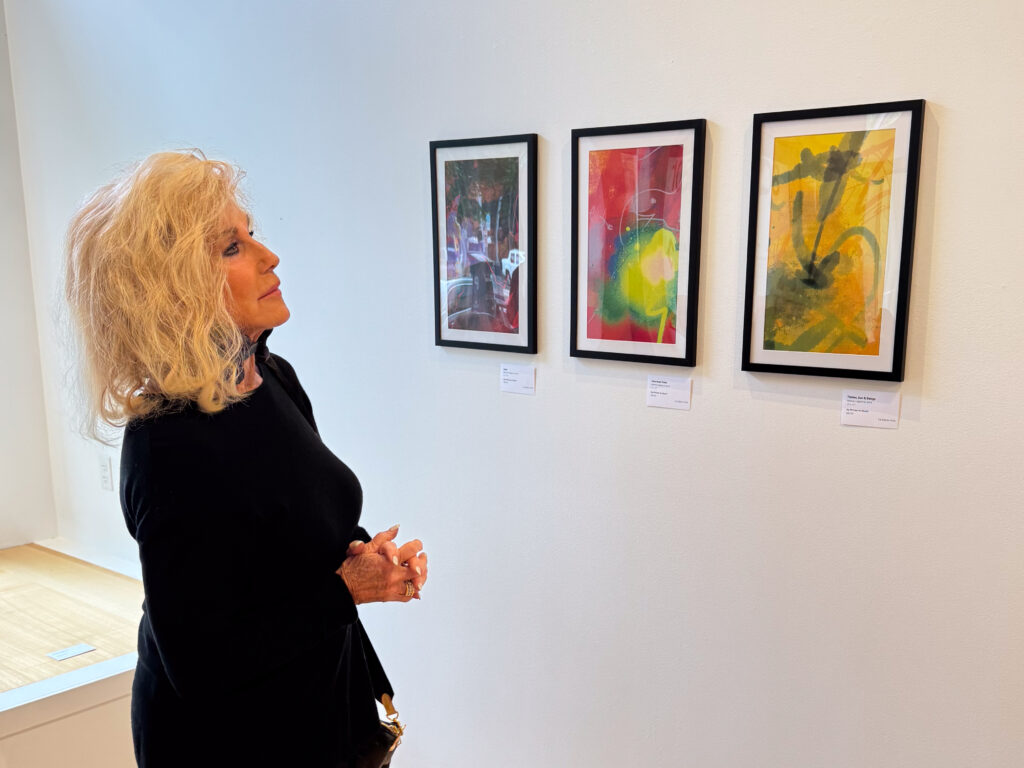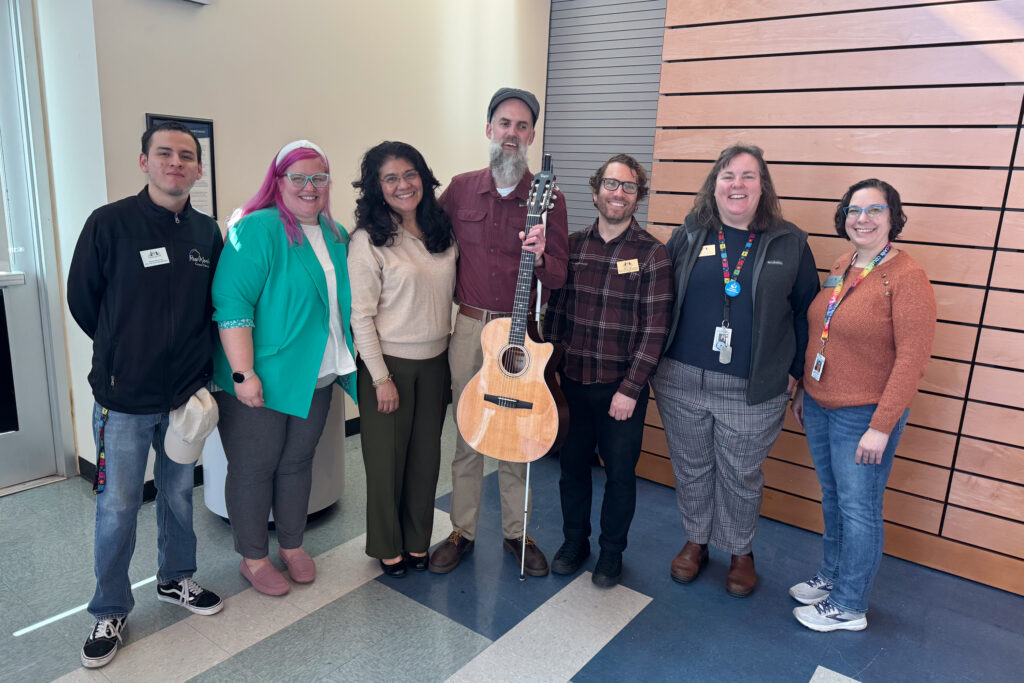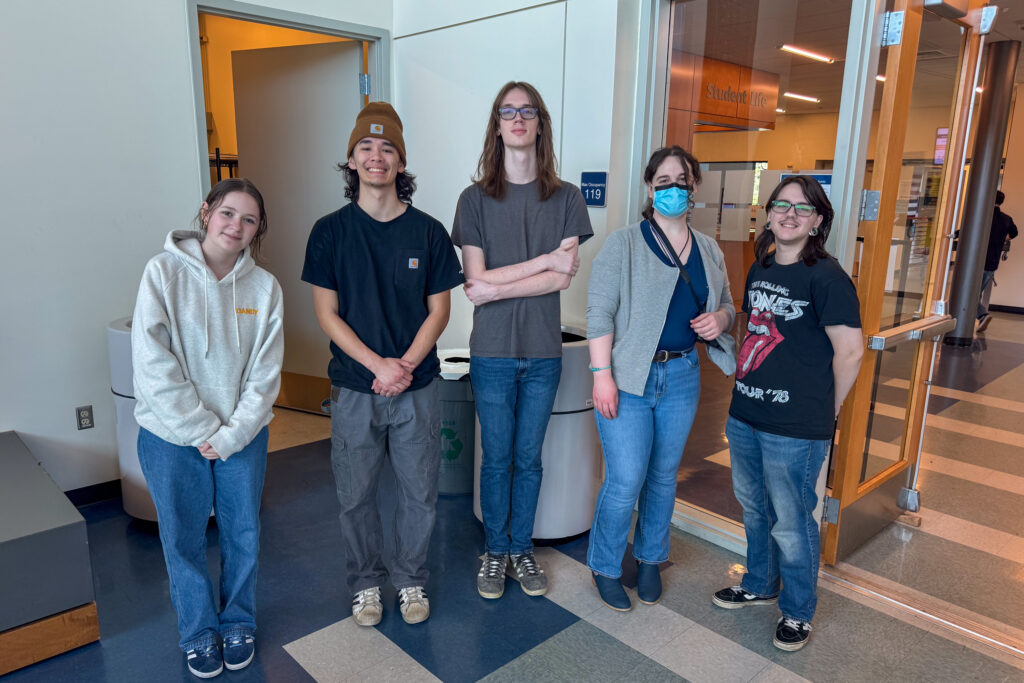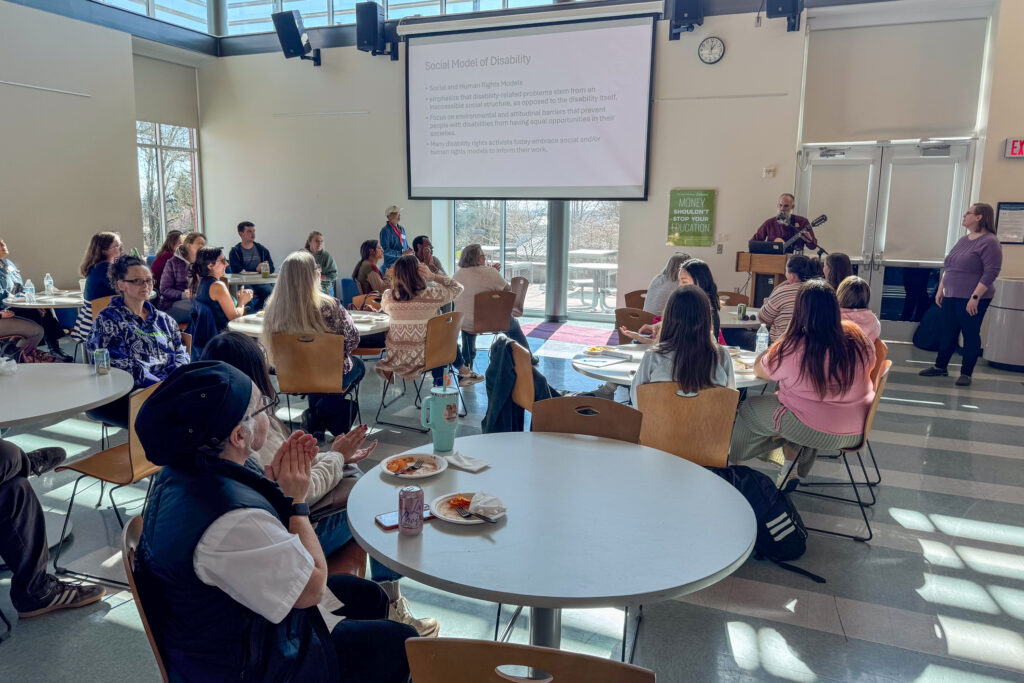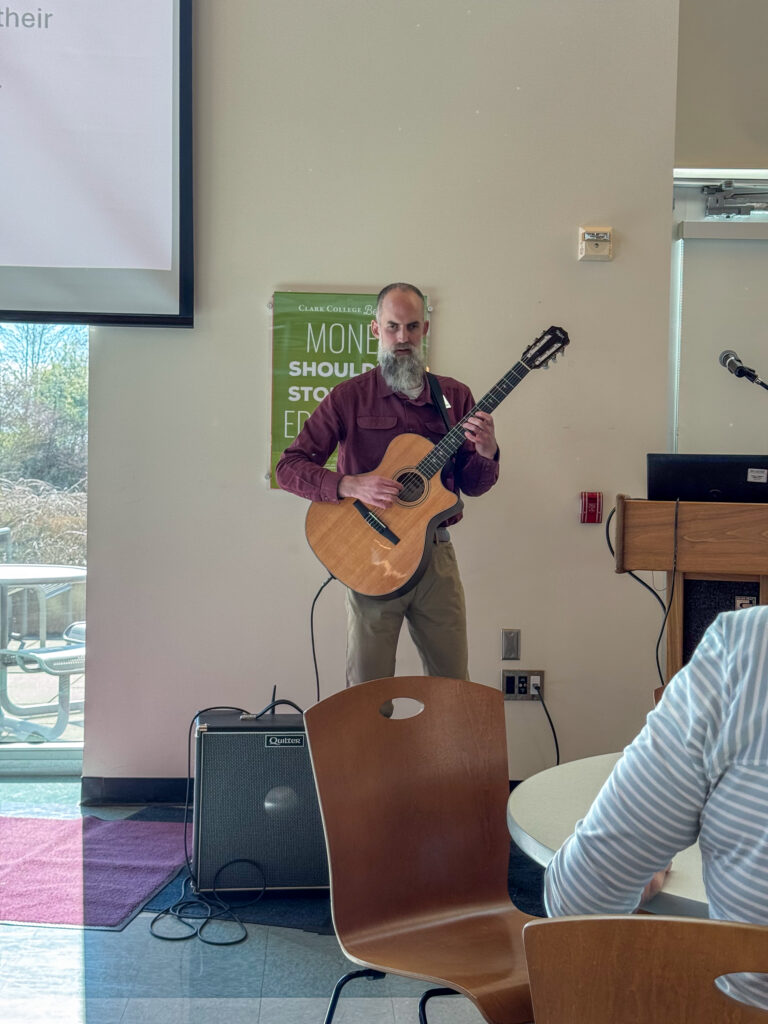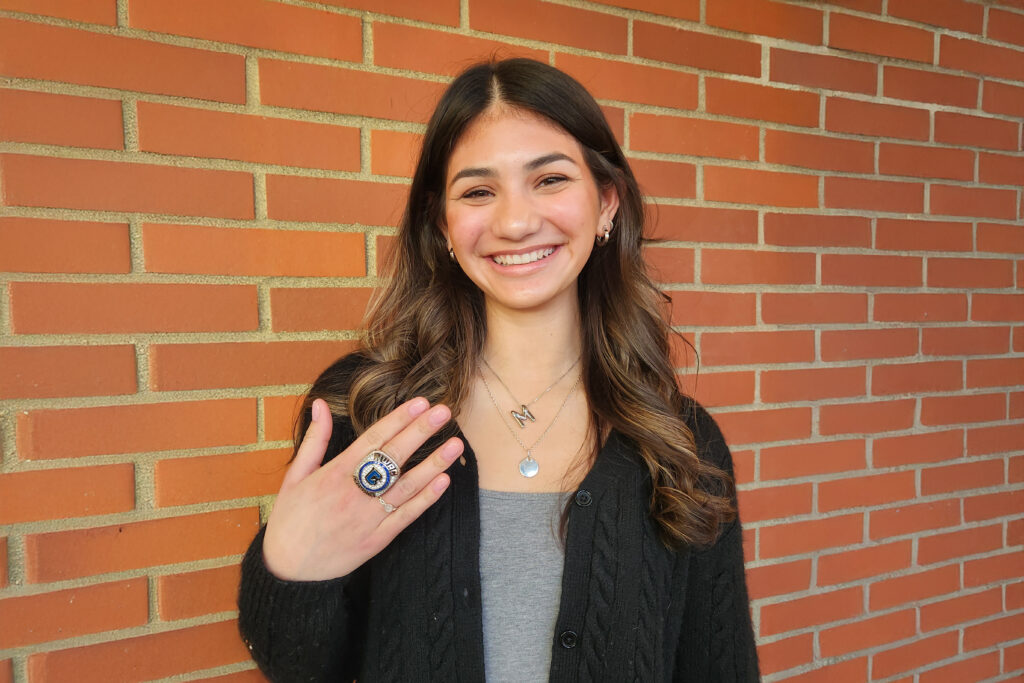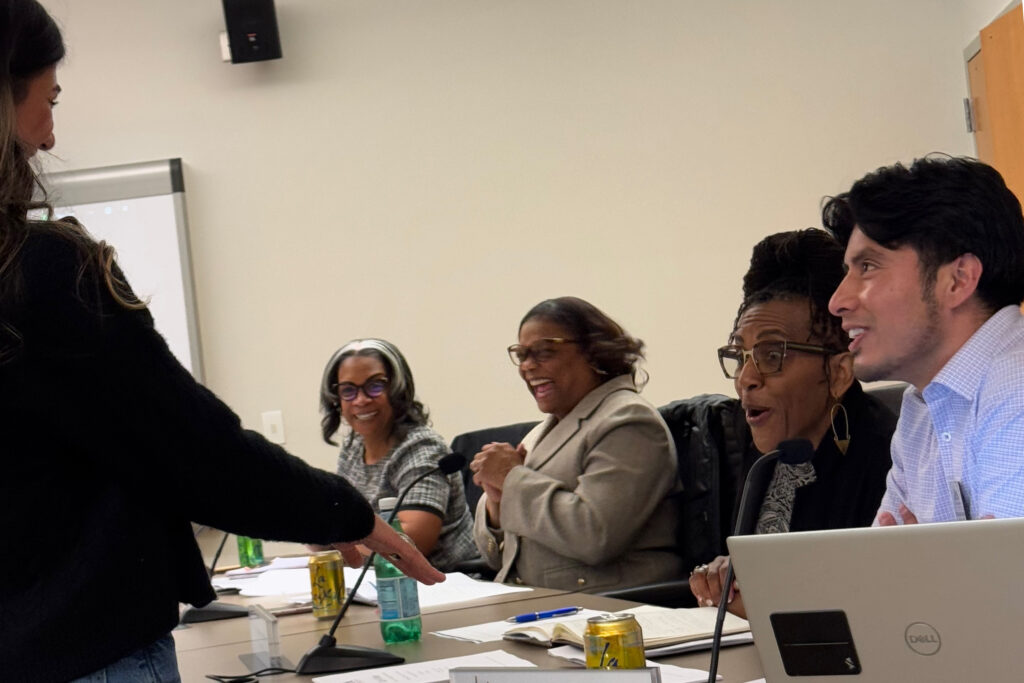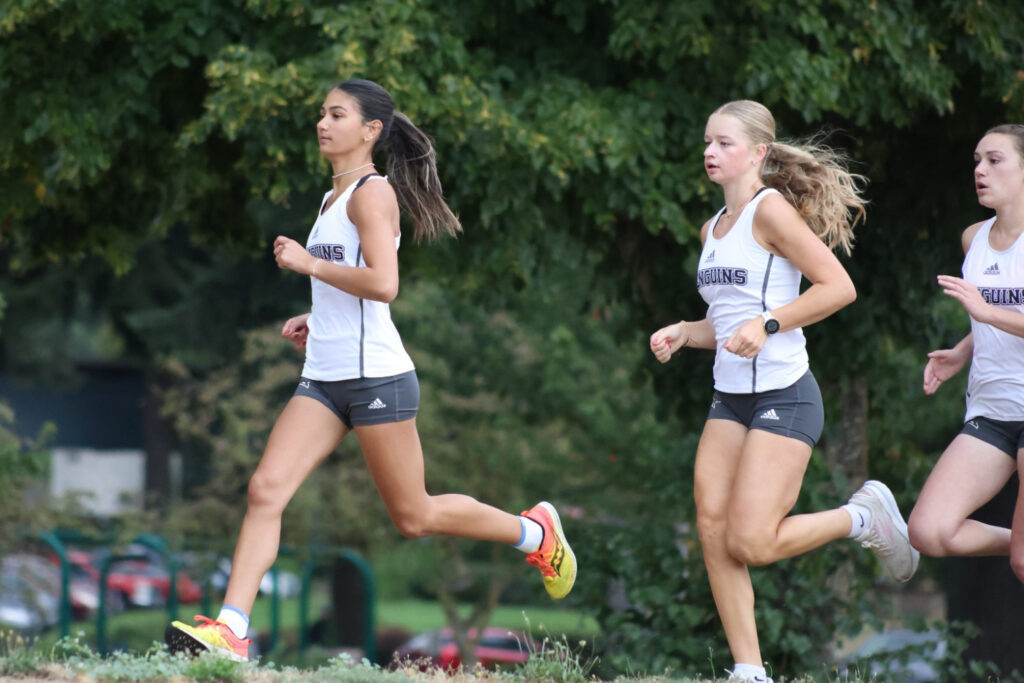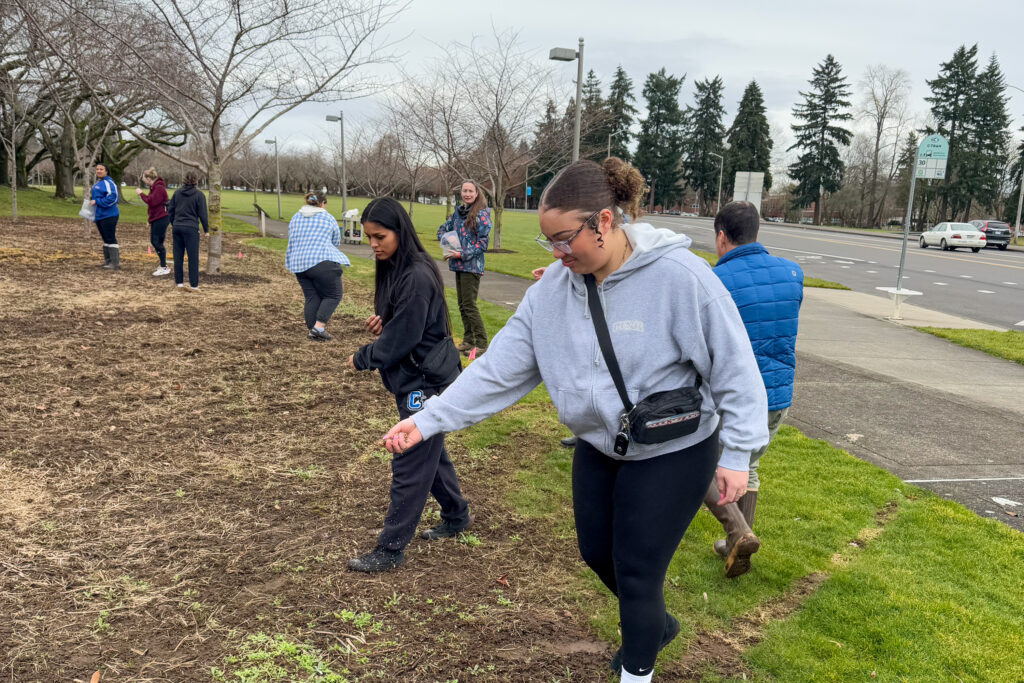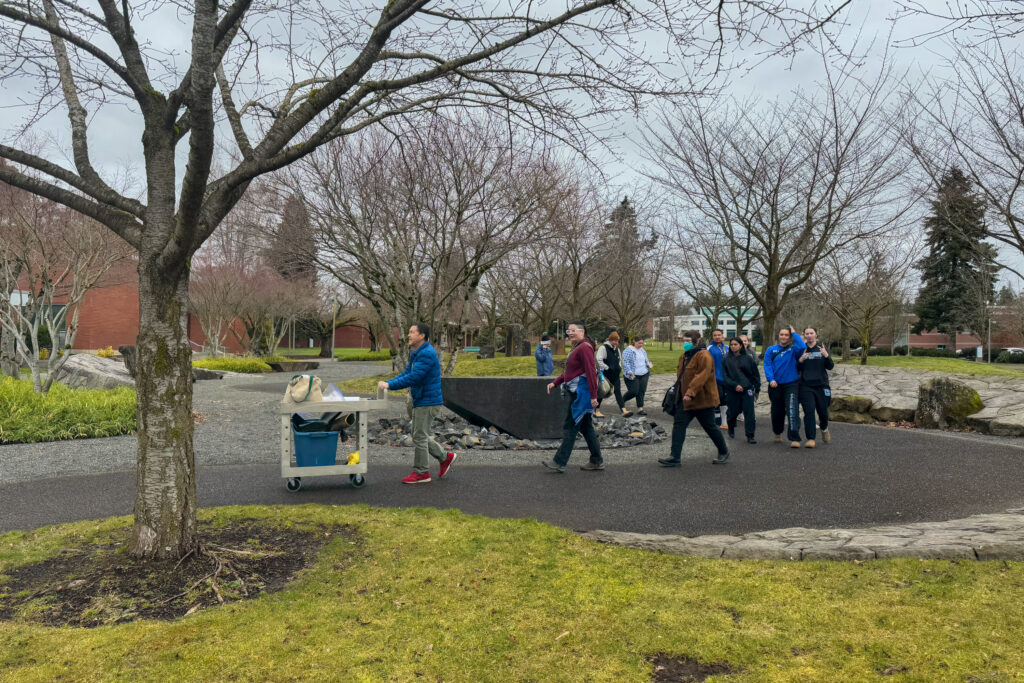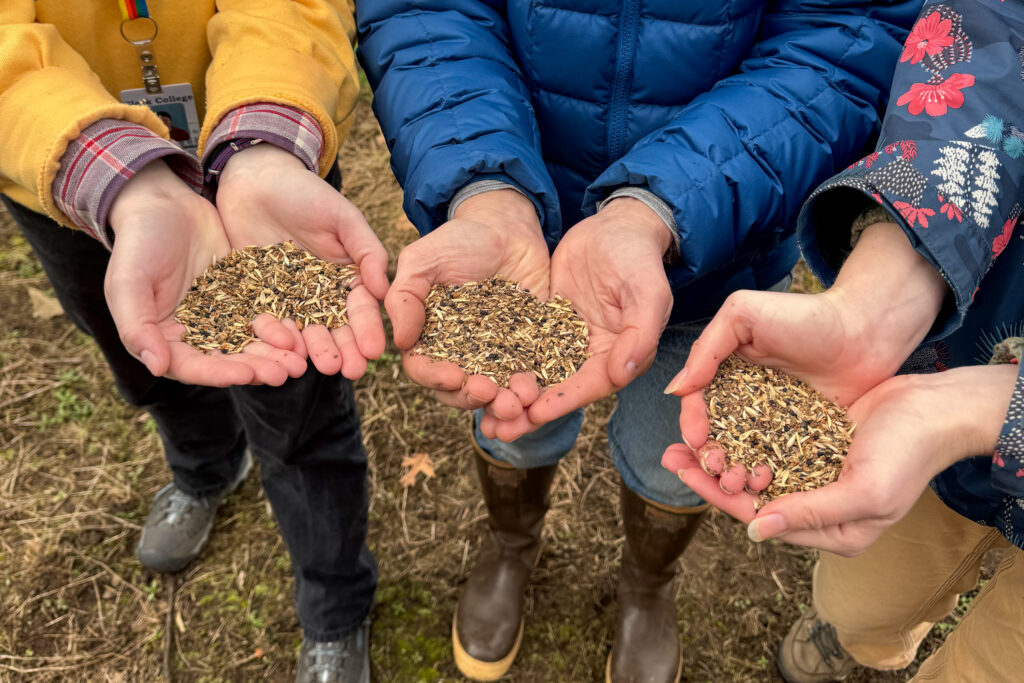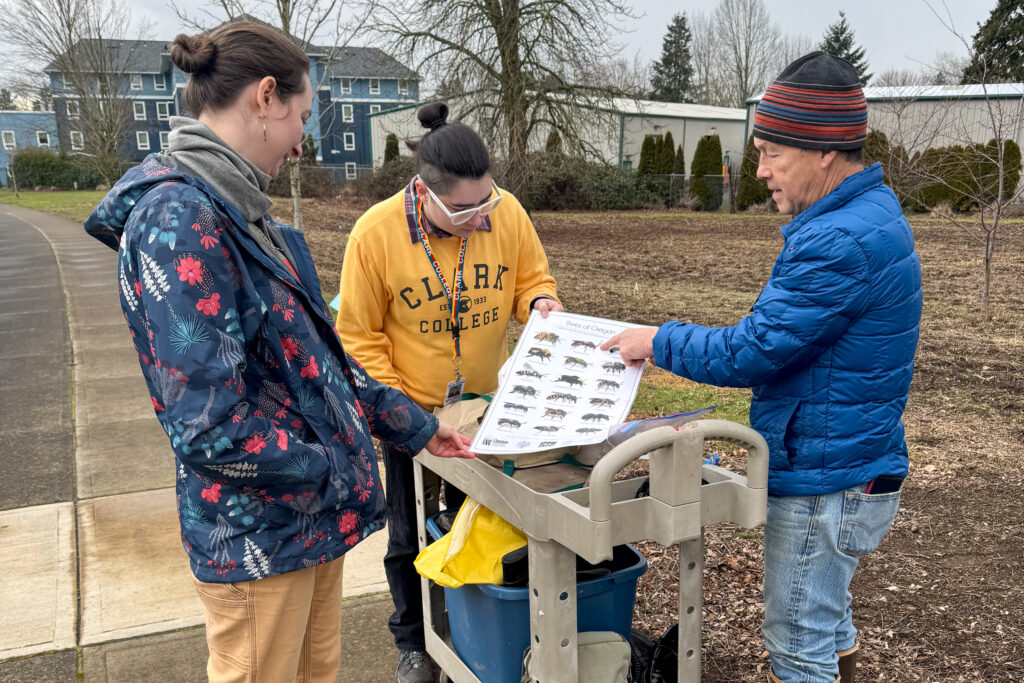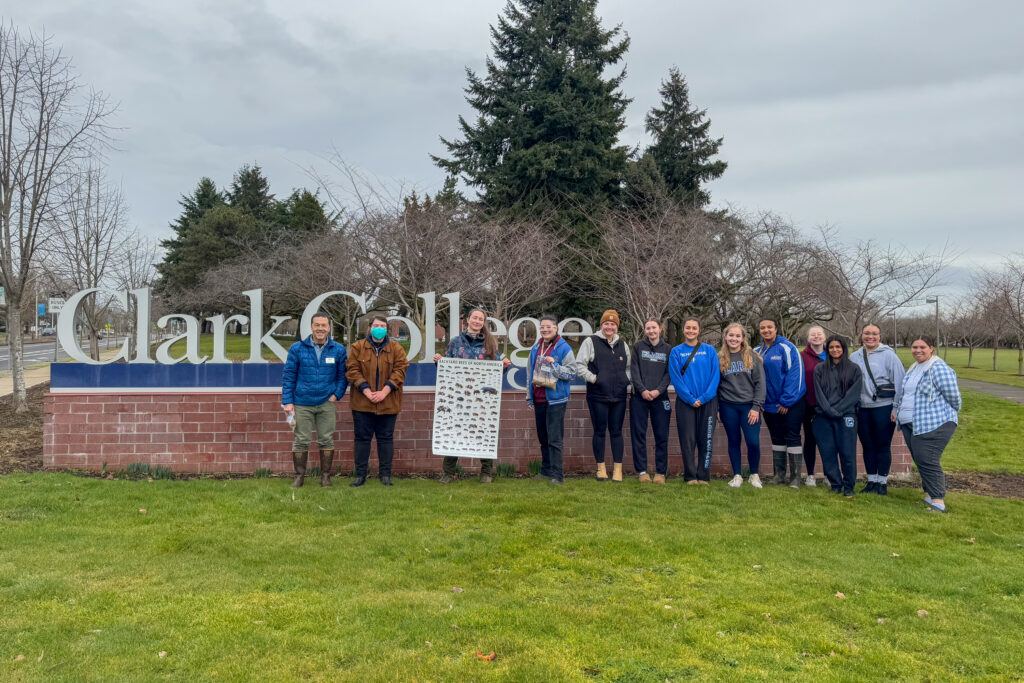New BUILD Grads Celebrate
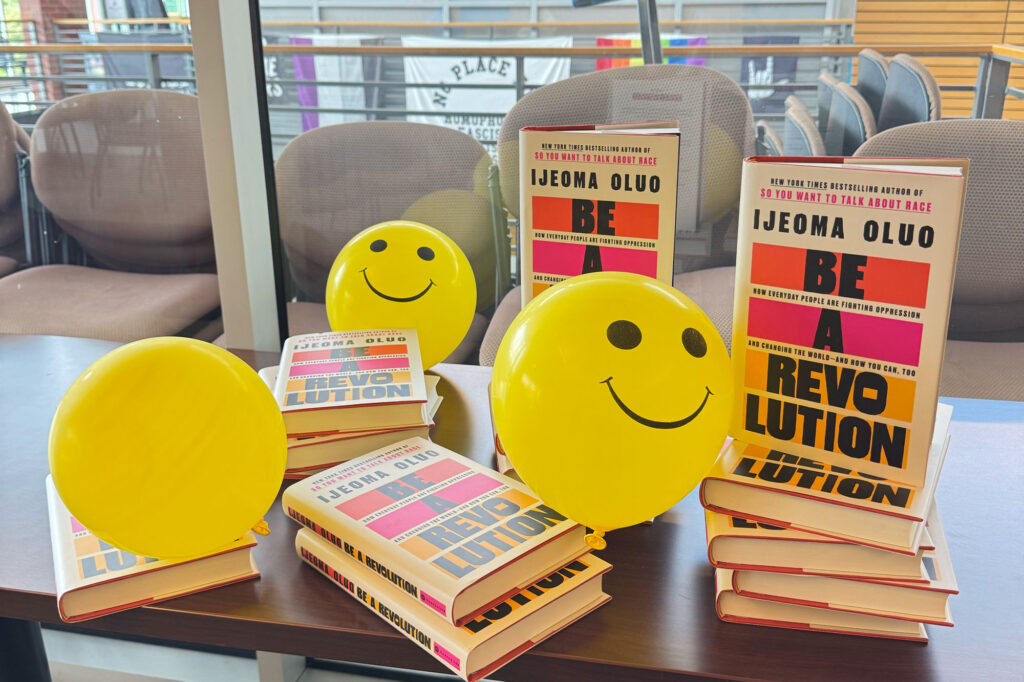
On May 22, the latest cohort of the Clark College BUILD program gathered to celebrate completion of the BUILD program, surrounded by the cheerful “yellow” theme—with yellow smiley face balloons, yellow cake, and yellow roses.
Dubbed the “Yellow Cohort,” 22 graduates presented project ideas, reflected on their growth, and received certificates of completion in front of peers and college leadership, including President Dr. Karin Edwards.
What is BUILD?
BUILD—which stands for Building Understanding and Intercultural Leadership Development, is a year-long program led by the Office of Diversity, Equity, and Inclusion. This year’s cohort is the 6th to go through the program.
Participants spend the year having challenging conversations about equitable decision-making, challenging white supremacy culture, and thinking about the internal work required for us to be become allies and change-makers.
Each participant also works with a group to develop and present a project proposal for advancing equity and a sense of belonging at Clark.
After presentations, BUILD grads earn a certificate. But the work isn’t over. The hope is that the BUILD grads will continue to participate in the BUILD community, engage in lifelong learning about equity work, and be an advocate for change throughout the college community.
Project Proposals
Before graduation, BUILD participants presented projects they developed using the equitable decision-making tool.
Universal Event Attendance Tracking Tool Proposal
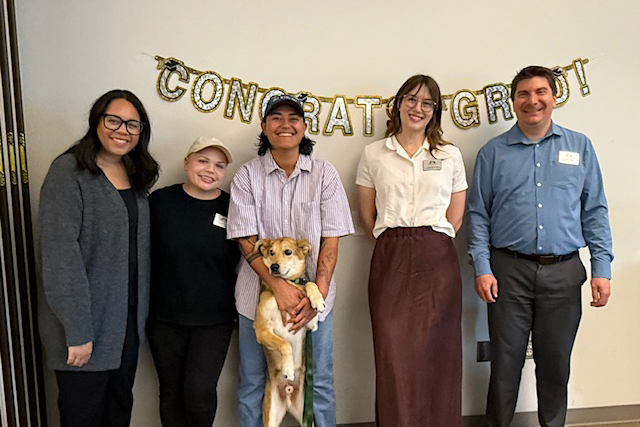
Lisa Barsotti, Byron Ford, Nicola Lippetti, Caitlin Malvar, Susan Martin, Carly Rae Zent
This group decided to design a project proposal that would promote a sense of belonging through a better understanding of how campus events reach students. The project would take advantage of the new advanced data-tracking tool, Watermark, that Clark is currently working to implement.
Their universal attendance tracking tool would create a database for departments across campus to use and track attendance at their events. That way, by looking at disaggregated data, departments could find patterns in what student populations are underserved, and change event design and promotion to better accommodate underserved students.
The Evolve Experience Proposal
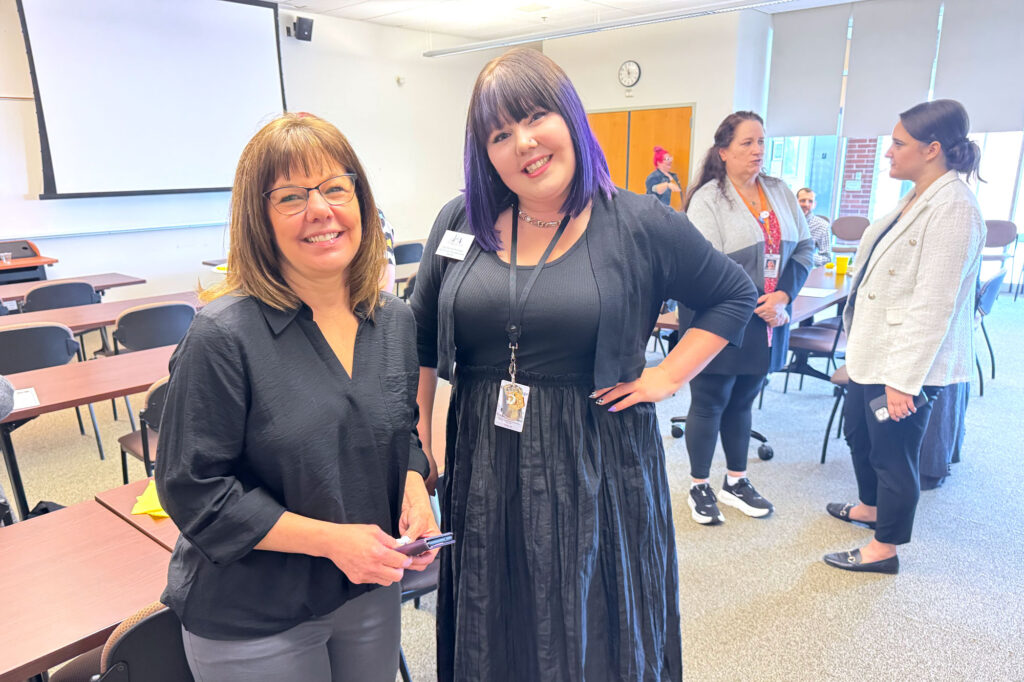
Laura Borgman, Stephanie Leeper, Nathan Stewart-Otto, Jonathan Woofter
This group proposed a project designed to reach people who responded to the climate survey and believe that “if I don’t see bias, it doesn’t exist.” They proposed bringing in an organization called the Red Door Project, which has a program called “The Evolve Experience.”
This experience uses theatre techniques to promote empathy between extremely polarized groups and explore nuances in complex relationships. Group 3 wishes to invite the Red Door Project to work with Clark on a custom experience that will resonate with the Clark community.
Employee Features Proposal

Angelina Albulov, Cheyanne Pfeifer, Tina Jenkins, Frani Morris, Dennis Blew
This group noticed that the climate survey indicated a lack of sense of belonging among staff and faculty. They worked to create a project that might increase belonging as well as break down silos between departments.
They proposed having rotating highlights of individual employees on ClarkNet, where employees will encounter them when seeking other information. The highlights could include specific information about what the employee does, what questions they can help with, as well as personal hobbies. The project also advocated for an employee forum.
A Common Read Proposal
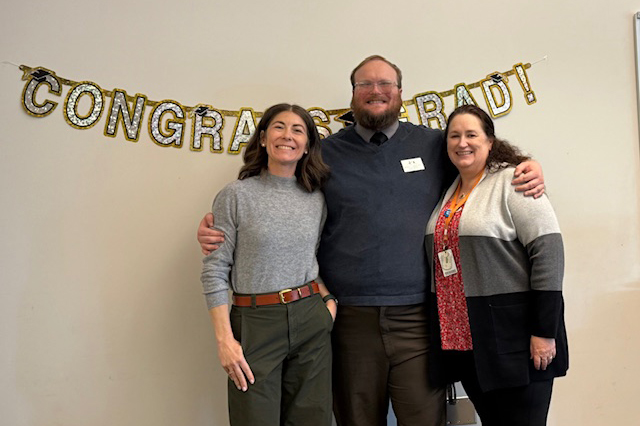
Michael Caldwell, Teresa Hay, Kelly Love, Suzanne Southerland, Christi Williams
This group also identified the lack of a sense of belonging among staff and faculty. They proposed a project that would help foster community and belonging through conversation—a common read!
To make the experience more equitable, they propose a multi-modal version of a common read with different ways of engaging with the text, including audio and film. They hope the common read would engage employees and offer an easy way to start a conversation when meeting new folks, as well as promote deeper conversations.
What’s Next?
BUILD members will continue to develop their project proposals! If you’re interested in getting involved, feel free to reach out to group members.
Applications for the next BUILD cohort will open in the fall. If you have any questions or are interested, reach out to Andra Spencer (aspencer@clark.edu).
